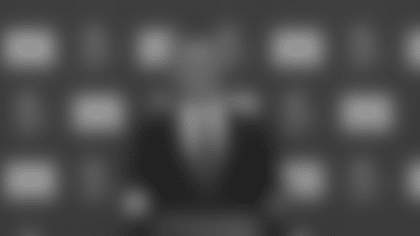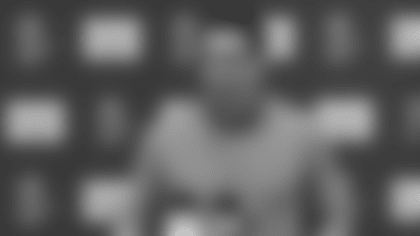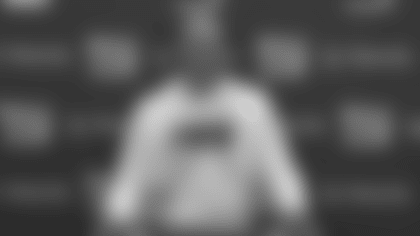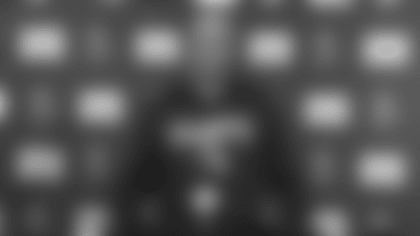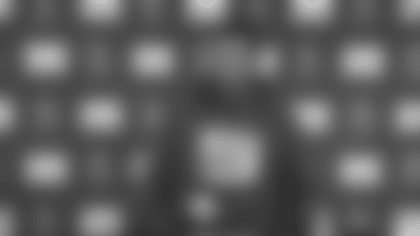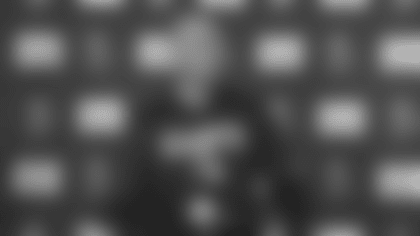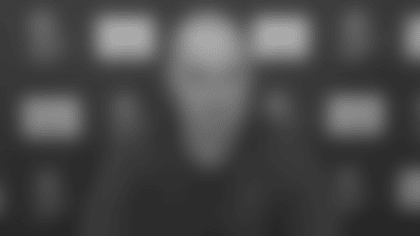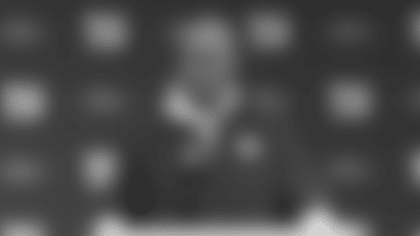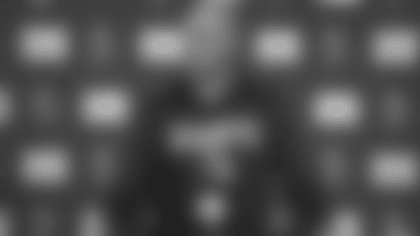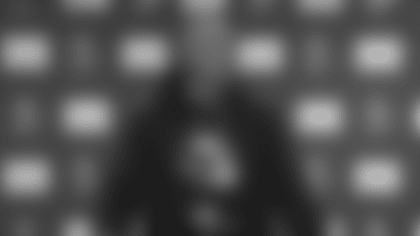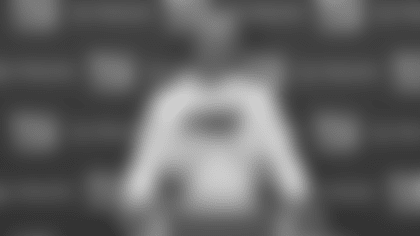Head Coach Brian Daboll
Q. You have a ton of tryout guys, what is the thought process, try to have a smaller group, bigger? How did you decide on that?
BRIAN DABOLL: You don't want anybody to slip through the cracks, so you bring as many people as you can in and give them an opportunity. Again maybe you sign one, maybe you sign two or you don't sign any. But I think it's good for those guys to get an opportunity and for us to get eyes on them doing some of our stuff, and if someone we think is worth bringing up and signing, that's what we'll do.
Q. Do you recall a situation where a tryout guy really impressed you and ended up turning your head and made a difference for you?
BRIAN DABOLL: Yeah, Malcolm Butler.
Q. What about Malcolm in the tryout phase impressed you?
BRIAN DABOLL: I was on the other side of the ball, but obviously the play he made, the team that I was part of, won the Super Bowl at the end against Seattle. That was a tryout guy that ended up being pretty productive for our football team in obviously the biggest game of the year.
Q. The draft guys you study, some of the tryout guys you study, too. You get a couple days out here, and it's the biggest thing in their lives and this one and that one and you've got the coaches, is it hard to put the trained eye on these guys and make sure you're seeing the right things?
BRIAN DABOLL: That's why you film every drill and spend time after practice. You go through the tape. You tell the coaches usually when training camp starts, and even these camps, don't be an instant evaluator, it's not just one day but here you only have two days. We went through the first day, we'll go ahead and watch these guys here in practice and then ultimately make our decisions.
Q. A lot of scouting is obviously looking beyond the numbers. Theo Johnson didn't even have a thousand yards in his four seasons at Penn State. What did you guys see beyond the numbers in Theo Johnson?
BRIAN DABOLL: He's smart. He's a young professional, a true pro, loves the game. Has good size. Can bend. Can run. Obviously tested really well. But had a really good pro day, too, at Penn State, moving around, running his routes, hitting the bag. You can only get so much out of it. You can tell his bend, you can tell he's athletic. He's a good guy we thought we could work with.
Q. Penn State, you've been there the last couple years when your son Christian was there. Did you get to know Theo from afar or closer than that? It looked like you had a relationship beyond.
BRIAN DABOLL: We've talked a few times before. Again had a lot of good recommendations from Penn State, from the people down there, what type of person he was. You know, some other people that have worked down there that either coached him or been on the offensive side with him. Big, long, athletic player that thought was good to work with.
Q. There were some specific times at Penn State where he thrust himself into a leadership role among his peers. What does that mean?
BRIAN DABOLL: I think, you know, credit Joe and their staff. Something that we place a high premium on is the type of person you are, the type of leadership qualities that you do have. It's hard to be a leader when you're a rookie and you're trying to learn everything. But certainly that's an important quality that we look at.
Q. You mentioned the team calls yesterday with some of draft picks. The undrafted guys, do they go through that process, too?
BRIAN DABOLL: It was mostly our draft picks to catch them up for, I would say, Monday. There's going to be a big learning curve for them. So just to try to catch them up on a few things but they are a ways away.
Q. How do you think Malik handled the bet that supposedly was made, and he ended up canceling. How do you think he handled that situation?
BRIAN DABOLL: One more time.
Q. He made a $10,000 bet for Rookie of the Year with Jayden Daniels and then he publicized it. Wondering how you thought he handled it, first-round pick, 20 years old?
BRIAN DABOLL: I think he's a mature young guy. Was happy with the way he handled it.
Q. Talking about Theo Johnson, he's one of three Canadians you have on the roster. How much of non-NFL football have you watched and how much correlation is there between the Canadian game and the NFL game.
BRIAN DABOLL: I got to watch him at Penn State. We have some people in our scouting department that are from Canada. I was born in Canada. If you can play, you can play.
Q. How much have you seen the way that betting is all over the place, the betting aspect of everything in sports, is that something like what Malik did, that six years ago wouldn't have turned heads?
BRIAN DABOLL: Yeah, there's rules in our league and we'll do everything we can to follow.
Q. Did you tell him when you heard about that, is that something that you flagged immediately?
BRIAN DABOLL: Yeah, I'd say our support staff, our people, we have conversations with all our guys. Rookies, you even have more. So they did a good job, and look, this guy is a good, young kid and I think he put that behind him.
Q. Speaking of behind him, that catch he made yesterday, is that an example of what makes him special, catch radius, the fact that he doesn't lose any speed when he makes that play?
BRIAN DABOLL: Obviously we picked him really high, so there's a lot of qualities about him that you can hopefully project him taking a good step here in this league. But there's a lot to learn. He's athletic. He's quick. He's explosive. He has very good hands. He's got good awareness. He's got flexibility to play inside and outside. Now it's our job and it's his job here to go ahead and start picking it up. There's a lot to learn. Certainly we thought he was a really good player obviously where we took him.
Q. You have some receivers, Malik is an example, guys who do have flex. Would you rather see them settle into, he's going to be our slot or he's going to be outside, or do you intend to go into the season flexing them in and out?
BRIAN DABOLL: Yeah, I think again the way the game has kind of evolved, the space game, you expect a lot of these guys to be able to play inside and outside. I think we have a number of players. Hyatt played a lot of inside at Tennessee. Obviously Wan'Dale played inside but he also played outside. We used Slay in a couple different spots last year, Malik.
So I would say that you try to teach them all the spots so that they can learn all the concepts and then try to put them where you need to put them. So we kind of require all our guys to try to learn multiple spots, multiple letters, if you will, of where we place them.
Q. The vets have been going through phase two. Guys who finished the season last year injured, like Evan Neal and Graham Gano, have they been working?
BRIAN DABOLL: Yeah, they have all been doing different things. Some more than others. I think they are all taking good steps of, you know, trying to get out there for the phase three portion. They have all been doing something.
Q. How about Aaron Robinson?
BRIAN DABOLL: He's still working with the rehab guys. He's doing some walk-through, but he's still working with the rehab guys.
Q. Has anyone been fully cleared?
BRIAN DABOLL: Yeah, they are all doing something. They are all doing something.
Q. Has Evan been here?
BRIAN DABOLL: Yeah.
Q. Every year you look, but with the new kickoff rules, are you and your guys even more cognizant of trying to find guys who can do that?
BRIAN DABOLL: What spot?
Q. Kickoff return.
BRIAN DABOLL: Yeah, I'd say there's a lot of – there are a lot of our skill players that are lobbying for it.
Q. Really?
BRIAN DABOLL: Yeah, defensive back or receiver. I think it's a different play now. There's a lot less space to run. There's a lot more openings for some of the runners. We are using a variety of people back there, whether you're a receiver or a runner or a defensive back, guys that are good in space. You go back and watch some of the tape from the other leagues, could be an explosive play. Hopefully we've got some explosive guys that can make some yards. It's another offensive play really.
Q. What's your philosophy with these guys lobbying if they are logging full snaps?
BRIAN DABOLL: If they're the best guys, play them. I've been part of teams that – Julian Edelman, a returner for us, made a lot of productive plays. If it helps the team, it helps the team.
Q. Do you have to change your practice schedule and add more time for kickoff now that the play requires a lot more new teaching --
BRIAN DABOLL: Sure.
Q. -- and learning for players?
BRIAN DABOLL: We devote quite a bit of time in that area, not just kickoff but just in special teams part of it. Really how Gho (Michael Ghobrial) sets it up, he's gone a great job since he's been here of being very, very organized, detailed in things we need to try to get accomplished. We give them ample time. But there's definitely a little bit more strategy placed on it. It's something new, so it's something we have to work out.
Q. Has it opened the door for seeing two returners back there more consistently?
BRIAN DABOLL: (nods yes)
Q. What have you seen from your new staff now that you have a couple weeks?
BRIAN DABOLL: I've been very happy with them. Very organized. Detailed. They have done a good job. Shane (Bowen) has done a great job leading his group. Very organized, and then Ghoby is full of energy out here, running around. We brought Cam (Achord) over from New England, he was special teams coordinator, he's been a good addition. Chuck, Charlie Bullen, has been a really good addition. TK, Tim Kelly, Carm (Briscillo). Again, we are out here, we've been out here for phase two. This will be the second day of rookie camp which is good. Be good to get out here for phase three and really get some good practices in.
Q. Inside linebacker seemed to be a spot where you guys actually had some pretty good depth with Bobby, Micah, Isaiah is back. What made Darius a good option for you guys in the sixth round?
BRIAN DABOLL: Well, Ghobs had some familiarity with him. Smart, instinctive guy. Loves the game of football. He was up there on our board, we were talking about him. I'm glad we got him. Good football player.
Q. Dru Phillips was talking about playing nickel and how it's changed, the perception. It used to be guys always felt like a last resort; well, you go inside, you go play nickel. I know you're talking from an offensive perspective when you mention your flexibility for your offensive guys.
BRIAN DABOLL: Yeah.
Q. How important has that spot gotten as a nickel corner?
BRIAN DABOLL: Sure.
Q. And do you look at it as a premium spot because of the way the game changed?
BRIAN DABOLL: Yeah, the game is mostly 11 personnel. There's some that people run some other, but heavy, heavy 11. I would say heavy sub on defense, almost three quarters of the game for the most part is played that way. It's a hybrid position. You have to be able to do a good job in the run fits, you've got to be able to cover man-to-man, tackle well, be physical. It's a very important position.
There's so many people that play multiple receivers that you need to be able to match that on the defensive side.
Q. How do you feel about that cornerback spot on the outside opposite Tae Banks?
BRIAN DABOLL: Look forward to working in phase three and training camp. But I've got a lot of confidence in (Cor'Dale) Flott.
Tight End Theo Johnson
Q. How was your first experience out here?
THEO JOHNSON: Really cool. You know, you dream of playing for an NFL team, but actually having that 'NY' on your helmet, it's a different feeling.
Q. How much room do you think you have to grow as an NFL player after your experience at Penn State?
THEO JOHNSON: Yeah, it's really exciting for me because I think I have a super high ceiling. I think I haven't even scratched the surface of what I'm capable of. I'm really looking forward to proving every day that I'm out here.
Q. I think I read that you have five brothers?
THEO JOHNSON: Five brothers, yes, ma'am.
Q. That's a lot of brothers…
THEO JOHNSON: Yes, it is.
Q. This is Mother's Day's weekend. What has mom meant to you and your brothers?
THEO JOHNSON: My mom has meant everything to me and my family. She's been our rock. I wouldn't be here without her. She took us out of a really bad situation and was able to work her tail off for me to be here. I attribute everything I've got and me being here today to her.
Q. You pay much attention to whether (tight end) Darren Waller is going to play this season or not?
THEO JOHNSON: I've heard stuff, I'm not sure what's going to happen. At the end of the day, him being in the room is going to be good for everybody, so we'll see how it shakes out.
Q. Has he reached out you at all?
THEO JOHNSON: No, ma'am.
Q. What's it been like getting to work with your new tight ends coach and start to build that relationship?
THEO JOHNSON: Coach (Tim) Kelly, we spoke during the pre-draft process. I got a good feel for him. It's been a lot more hands-on now. I think he's done a great job of coaching and I think he's going to really help me improve.
Q. What were those pre-draft conversations?
THEO JOHNSON: A lot of it was just getting a feel for each other, just him showing me a little bit of his coaching style and just trying to get to know me as a player, how I learn, stuff like that. So, it wasn't anything super, super in depth. Just kind of getting a feel for each other.
Q. It's hard when you're just meeting someone, but what stood out about his coaching style or what attracted you to know you wanted to work with him?
THEO JOHNSON: I think he's very honest and a little blunt if I'm being honest with you. I think that's good, because you want someone that's not going to sugarcoat anything. You want someone to be straightforward. That's the best way to improve and grow in my opinion.
Q. Do you enjoy blocking?
THEO JOHNSON: I do. Yeah, that's a big part of my job (when I) was at college in Penn State. We took a lot of pride in it. We had those big packages, three tight ends, two running backs. I do enjoy it. It's something I take a lot of pride in and something I'm going to continue to work at every day.
Q. Is that something you have to learn to like or it's just dominating somebody one-on-one in a block?
THEO JOHNSON: I think naturally it's something you have to work on. I think when you have that right mindset, when it's coached – it can be coached, but some people just have that switch that you can't coach or teach.
Q. You have a lot of the attributes that you can't coach. That height, weight and speed that are just God-given. What is it that you want to focus on to help you take it to the next level?
THEO JOHNSON: Yeah, I think the big thing for me is consistency. Being consistent. I'll flash a lot of really good things on tape, but it's putting all that stuff together every single snap that's going to help me reach my potential.
Q. So much of the pre-draft process is made about your high ceiling for being a pass catcher, to be out there and go out there and develop into that. Do you think people might be a little surprised -- I'll be honest, I was surprised -- that you're bigger than what people made you out to be? Surprised by your strength, physicality a little bit when you get out on the field with veterans?
THEO JOHNSON: I mean it's never been a surprise to me. I've kind of always known that about myself. But based on what people have said about me, maybe people will be surprised about that. It's something I've always known, the people I've worked with closely have known. It's just a matter of kind of showing it to everybody else.
Q. How do you find consistency?
THEO JOHNSON: Consistency comes from repetition, doing it a lot, and then being very detail oriented. Being very honest with yourself when you're watching film and then having a coach that's going to hold you to that standard every single day and not let the little stuff slide. I think that's a big part of having consistent technique.
Q. Tight end is a tough position coming into the NFL because you've got so many different responsibilities. Just curious what are your first impressions of the playbook? How much have they thrown at you?
THEO JOHNSON: Yeah, tight end is a lot, even at the college level. You're just asked to do so much, and that's why I think it's a great position. Everything you're asked to do, it's very unique. It's not just a one-tool guy. The best tight ends are able to do everything. I think that's really cool for a guy like me that I feel like I have the potential to do all the things that you can ask a tight end to do and be a guy that you can't take off the field.
It's a lot, but it comes with the territory.
Q. You became a real red zone weapon last year. Seven touchdown catches. Is that just getting more opportunities or something you developed?
THEO JOHNSON: I think that has to go with how we schemed this up down in the red zone. That's definitely an area I think I can excel in, just big guy in short areas. It's a little bit of a matchup.
But, yeah, I think that's something I'm going to improve on.
Q. How much more room to grow in an offense do you think you can show at this level?
THEO JOHNSON: I think I have tremendous room to improve. I think I can grow a lot more than where I'm at right now. I think that's why I'm so excited. I'm coming in here with a learning mindset. I want to develop respect from my teammates and my coaches. I think that's going to help me continue to grow and improve. But I'm super excited to get to work and get going here, because I think I have a potential to be a really special player here.
Q. When you're in high school and college, you have four years to go from freshman to senior, where you're the small guy in the room to then all of a sudden you're the leader. You pretty much have 48 hours coming off rookie minicamp being a draft pick to now on Monday when the veterans walk in. Have you prepared yourself mentally for that? Have you gotten advice from people about how to carry yourself when the veterans walk back in here to their locker room, which has been your locker room the last two days?
THEO JOHNSON: I think it's a little bit different than going from high school to college. In college you go from being a kid for the most part and you leave a man. I'm coming into this league 23 years old, already being a man, so I have that mature approach to things. I don't think it's going to be as much of a difference with my approach because I feel like I already kind of did that at Penn State.
Q. With Waller, if he's not there, the tight end position is open for playing time now. Does that excite you, the opportunity to get on the field and contribute day one?
THEO JOHNSON: I'm super excited for whatever role I have this year. Whatever that looks like, I'm going to take it in full stride and I'm going to put my all into it. So whatever role that is, I'm going to give everything I have to it.
Running Back Tyrone Tracy Jr.
Q. We didn't get to talk to you after you got picked. Saw some videos. Pretty emotional. What was that day like for you?
TYRONE TRACY: It was very emotional. I'm blessed. I'm grateful. I've been working for this for 20 years, so when you work for something for so long and you see that all the work has an outcome and you see the results from it, it's a special moment for me and my family.
Q. What was your reaction when you heard during the pre-draft process that the NFL changed the kickoff rules?
TYRONE TRACY: At first they didn't, so everybody was talking to me about punt and punt return, but when they changed it, it kind of added a little bit more value to me and really the rest of running backs because that's something we can place in our bag and do on the field and add to our skillset. I was pretty happy to say the least.
Q. How do you think that will work? Have you watched I guess XFL film? It's not going to be like college, different alignments and stuff. How do you think it'll work?
TYRONE TRACY: Pretty much the same. To be honest with you, like to me, football is football. You place a playmaker on a football field, you put ball in his hand and he goes out there and makes a play.
It's one-on-one blocks across the field, so when -- again, when the ball comes to me I'm just going to do my best to make sure I make an explosive play.
Q. What was your contact like with the Giants during this pre-draft?
TYRONE TRACY: You know, I had a meeting with them during the Shrine Bowl and I met with the running back coach, Coach T (Joel Thomas), probably right after my pro day. But other than that, not really much contact.
You know, I knew they liked me just from my agents and what they was saying. Other than that, not much contact. Happy to be here and blessed to be here and just thankful they chose me.
Q. What was that initial meeting like?
TYRONE TRACY: It was lovely, not going to lie to you. Just because like, again, I've been thinking and waiting for this moment.
When it actually gets here and I'm in the meeting room in Giants gear, it's just a blessing. You get to think back on all the things you've done to get to this point.
But that meeting was good. It was definitely good.
Q. Something we discussed a lot in your past, why did it take you so long to transition to running back?
TYRONE TRACY: That's a great question. So I always knew I wanted to play running back, but just never had the opportunity to. The opportunity was really for receiver. At Iowa, we had some really great running backs. At Purdue, we had great running backs. So I did what the team needed me to do. They needed me to be a receiver, so I went out there and did the best I could at the position.
Q. How did it change? Did you finally wear them down and say, hey, I'm your guy, or did they come to you? How did you actually get to do what you wanted to do?
TYRONE TRACY: Yeah, at first it was Coach Walt (Ryan Walters), so the head coach at Purdue and the running back coach, Coach C (Lamar Conard). But Coach Walt was initially the one that came to me and said, hey, you're a pretty good receiver but you can be a really good running back if you put your mind to it.
He was watching my film, seeing that that when I had the ball in my hands, I could be very explosive, but -- which is the easiest way to get the ball? At receiver or running back. I kind of bet on myself.
I knew that I could play running back because I played it my whole life. I just changed to receiver. It was actually easier to transition to running back than it was to go to receiver, because receiver is different techniques and different things you have to do to be successful at that position.
So when I went back to running back everything came naturally. I had to be more detailed, more focused on the details and the fundamentals of the position.
Q. Do you think you would've been drafted if you were still a receiver?
TYRONE TRACY: To be honest with you, no. To be honest, no. At receiver, I might have been an average speed receiver, average size receiver.
At running back, I'm a fast running back, I'm a big running back. I'm a running back who can catch the ball out of the backfield.
So, yeah, when you look at how God placed every single thing and allowed my situation to kind of align up, switching to running back from receiver was actually the missing piece to the puzzle.
Q. Since you played receiver, you had less wear and tear on the body than you would have at the running back position.
TYRONE TRACY: Yeah, that was a lot of things that the -- some of the NFL teams were talking about during the process, was just the wear and tear on my body is minimal.
So I didn't really have that many snaps as a lot of the other players that was in the draft, but I did have -- my stats kind of spoke for itself. The film kind of speaks for itself as well.
Q. You said it was natural to go back to running back. At the highest level, having to read everything so fine, how much has that been an adjustment to be able to do it not just like high school where you probably were the best athlete on the field?
TYRONE TRACY: It was an easy adjustment because I love the game. When you love the game, things about the game comes easily, like studying the film, understanding why you have to pay attention to the nose tackle rather than the D-end.
Just understanding that the details matter of the position. So when that switch kind of happened I was in love with the idea of understanding that I have to know more. I have to know more about the position and know more than what I know now, because it wasn't good enough.
So when you take everything in and you understand that like, again, you have to kind of broaden your perspective of the whole game, not just what do I do on this play.
It just makes you smarter on all levels.
Q. As an explosive player yourself, what do you think makes Malik Nabers a top offensive weapon?
TYRONE TRACY: Yeah, Malik is different. I'm just watching him run around. I had actually -- haven't watched any of his film myself, but watching him out here going through practice, he's about the details and he's doing things the right way.
When the ball comes to him he's catching it. Not only catching it, he's catching it all around his body and making sure that he's catching it to the tuck and doing things the right way, and I think that's what makes him special.
Linebacker Darius Muasau
Q. How has the transition from Hawai'i?
DARIUS MUASAU: (Laughter.) Oh, man, I'm transitioning very slowly, but I'm learning. I'm adapting, getting acclimated to the weather, the culture, everything out here. But I'm loving every second of it.
Q. This is as cold as it gets.
DARIUS MUASAU: Okay, good, because that's all I can handle right now.
Q. Get the coats in order?
DARIUS MUASAU: Yeah, I brought all my cold gear in Hawaii, all two jackets that I have. (Laughter.)
Q. What's this weekend been like?
DARIUS MUASAU: It's been a great experience. Just another opportunity to go out, learn the playbook, learn from the coaches, and pick their brains. Got a little head start going into this whole -- starting off my career. Just really taking it all in, soaking it all in, learning how to become a pro, and just becoming a student of the game.
Q. When you got picked by the Giants, was that on your radar because of (Michael) Ghobrial? What was your relationship like with him after being coached by him? Had you guys stayed in touch?
DARIUS MUASAU: We hadn't stayed in touch until I saw him at one of the All-Star games, the Shrine Bowl. Once I saw him, we kept in touch then, and once I got it phone call, obviously I was just grateful for the opportunity at the time. I just automatically thought of Ghobrial. Like Coach Ghobi is actually there, and all the connections I had with him from the University of Hawaii, I'm glad that that connection stayed strong, and all the coaches and connections I made throughout all my All-Star games and speaking with the scouts at the combine and all that throughout the whole process. I'm just very grateful to be here right now.
Q. What kind of lesson is that for you knowing that you go all the way back to the days when -- you meet a special teams coach and I'm sure everybody has big dreams. At that point, he was just your position coach in college, right?
DARIUS MUASAU: Right.
Q. All these years later, you end up getting drafted to the team and you find out that he's put in a positive scouting report on you from five, six years ago when you guys were together. What does that mean? What kind of lesson do you take from that?
DARIUS MUASAU: Just means that I hope I just made a great impression on Coach Ghobi when I got there. He was only at the University of Hawaii -- I was only there with him one year, my freshman year at Hawaii. You know, I only played special teams that year. That's how I contributed to the team. That was my role there. I guess I was on every special teams also at the time. I was playing all -- I was on kickoff, kickoff return, punt, punt return. But that is how I made my money out there. I just love running down, playing the ball, making plays for the team. Any way to contribute to the team. That's the way I did it. Now it's a small world seeing Coach Ghobi here now. Just a full circle moment having him here. Coming from the University of Hawai'i to now here in New York, it's crazy.
Q. You feel like that's -- to you use your phrase -- the way you're going to make your money again now here as a rookie?
DARIUS MUASAU: I don't want to put any words like that into it. I just want to find a way to contribute to the team in any way possible. If that's -- if it is special teams, then so be it. That's the way I'll contribute.
Q. What was it like being back on the field with Ghobi? Is he the same coach? Has be changed at all in the last couple of years?
DARIUS MUASAU: Same coach. Always has high energy with him. High energy everywhere he is. You know, it's crazy. It's like giving me flashbacks of when I was sitting in his room what was that, five years ago from now. Man, I'm just loving the feeling. Nothing beats this, man.
I'm loving it out here. Being in New York and being able to play the game that I love most in this beautiful city, can't beat this.
Q. Have you seen snow?
DARIUS MUASAU: I've seen like -- I played in Wyoming, high altitude, and it was like light snow. But nothing really crazy. I'm also looking forward to a white Christmas, you know. I haven't seen anything like that in Hawai'i, so I'm just really excited to be here.
Q. Snow gets old fast.
DARIUS MUASAU: Okay, maybe just one year. (Laughter.)
Q. You come here and say you're waiting for snow; we look at you going, can we go home with you?
DARIUS MUASAU: (Laughter.) That's funny.
Q. You had three 200-tackle seasons and a third tackle season that was almost 100 tackles.
DARIUS MUASAU: Right.
Q. How much pride do you take in being a consistent tackler and wrapping guys up? How do you explain those numbers?
DARIUS MUASAU: I wouldn't say it's all just my doing. It's mostly the coaching staff, the players to my left and my right, the D-line, my other linebackers, and my secondary. It all starts with them doing their job, making it easy for me to execute my plays. So, all the praise goes to them. For me, it's easy, my part. Just getting to a ball carrier, wrap up, bring the guy down. That's what I love in this sport, the physicality of this sport. That's what I feel like I bring most to the table. Just I just love running and hitting. That's what I pride myself on doing.
Q. I ask because if you watch football, you see a lot of guys drop a shoulder or try to push a guy out of bounds and some of the fundamentals get away from you on tackling.
DARIUS MUASAU: Right.
Q. Watching you, doesn't seem like that ever happens with you.
DARIUS MUASAU: I'm not perfect. I make mistakes here and there. I'm striving to fix all my mistakes as far as the tackling game because that's what linebackers do. We tackle everything we see. Everything that has the ball, that's what we do, we just tackle. Just trying to perfect my craft in that point and trying to get better.
Q. What do you think it will be like to learn from Bobby Okereke?
DARIUS MUASAU: Bobby, that's what I'm looking forward to most, is learning from the best. I'm a student of the game. I want to be the best version of myself every day, and soon try to be the best at my position.
You know, it starts right there. Starts with Bobby. I know he has a few years under his belt. He's doing great things along with all the other vets in the room. I'm trying to be a sponge and soak in all the energy from them and also, my coaches, Coach Eggs (John Egorugwu), just trying to learn everything from them and apply it to my game as well.
Q. What does Bobby do really well that I admire?
DARIUS MUASAU: Like I said, he just runs and hits and very fast. That's what I pride myself on, too, just running around and hitting and just being instinctive. Just being a very smart player. That's what I think he does best, and I'm just trying to pick his brain and learn from him.
Q. There might be a misconception when someone is coming and smiling and so happy to be here that maybe you don't have that edge. I got to imagine when you're on the field you're able to find that edge pretty easily and are able to compete; is that fair?
DARIUS MUASAU: I would say off the field does not translate to on the field. Off the field, I would consider myself more of an introvert. I wouldn't go out of my way to kind of hang out with people or I don't really go out. I rather stay home, stay with my family, relax. Once I get onto the field, it's crazy. I don't know how to explain it. It's somebody else on this field. All of a sudden pre-game speeches become my thing. I talk to the whole group, communicating out there. I am very vocal, talking to everyone, and making sure we're all on the same page. I don't know how it explain it, but, yeah, that's just I would say my alter ego on the field.
View photos of the 2024 class reporting for rookie minicamp at the Quest Diagnostics Training Center.
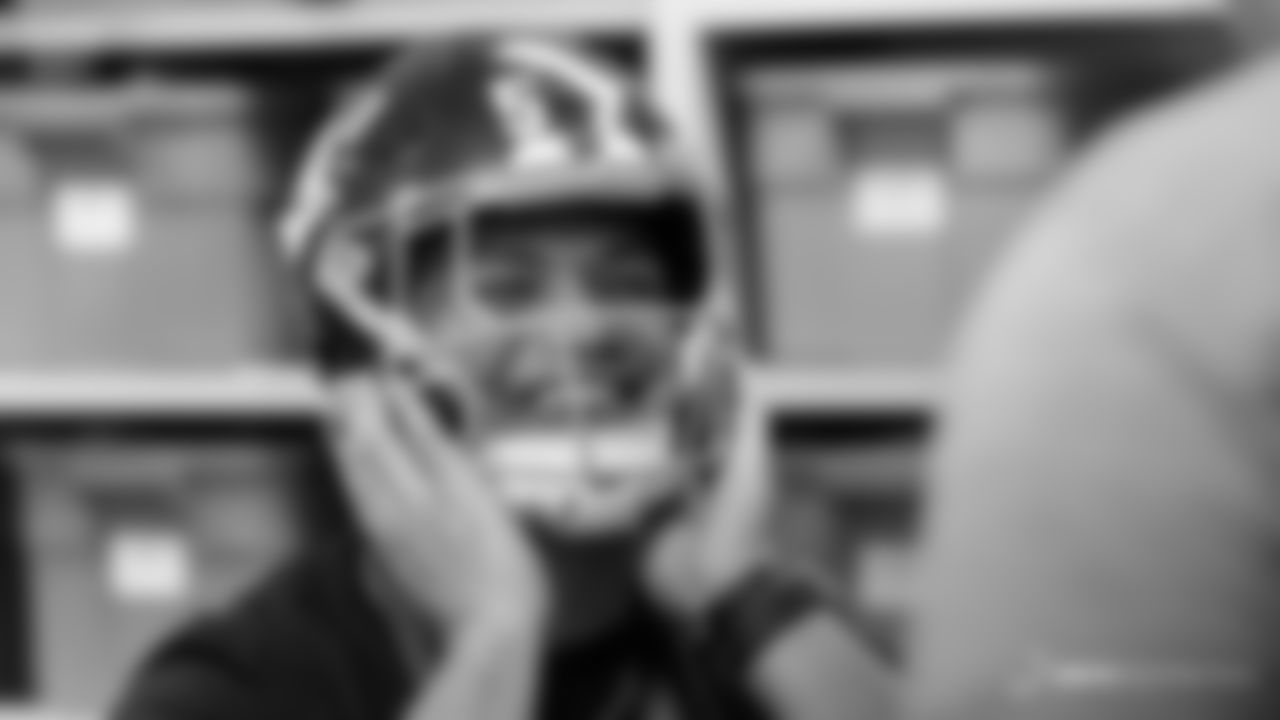
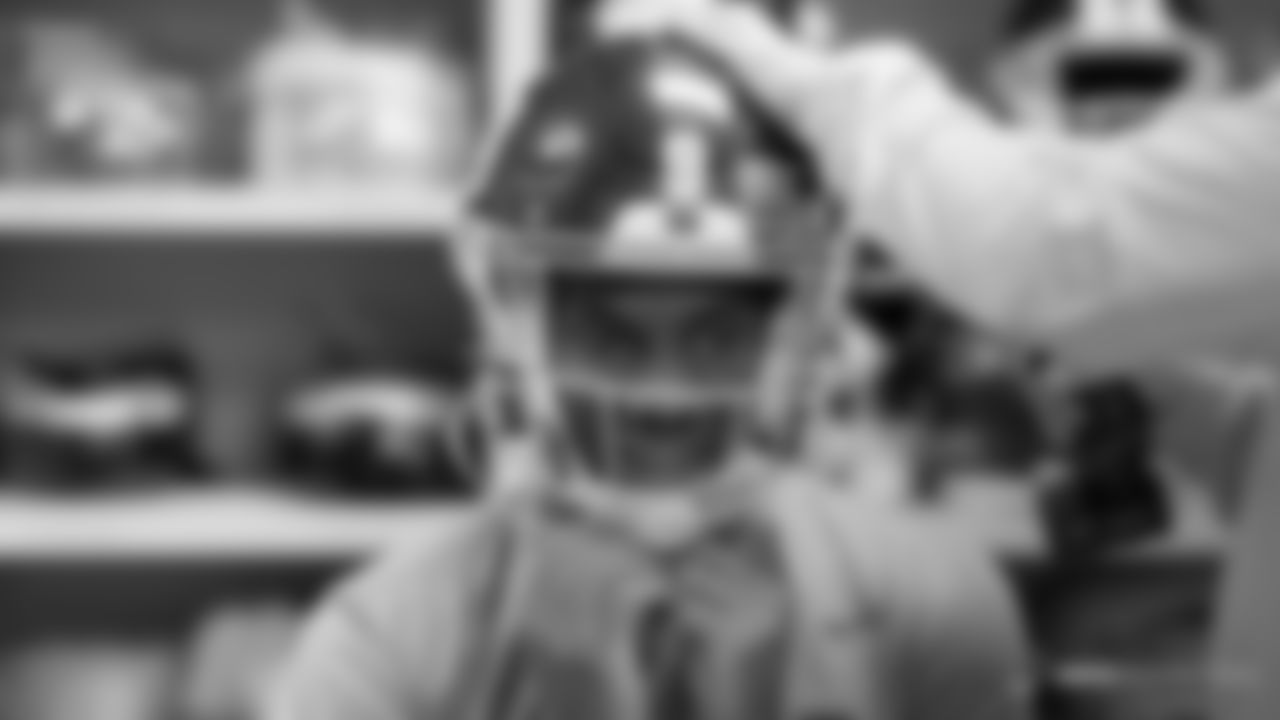
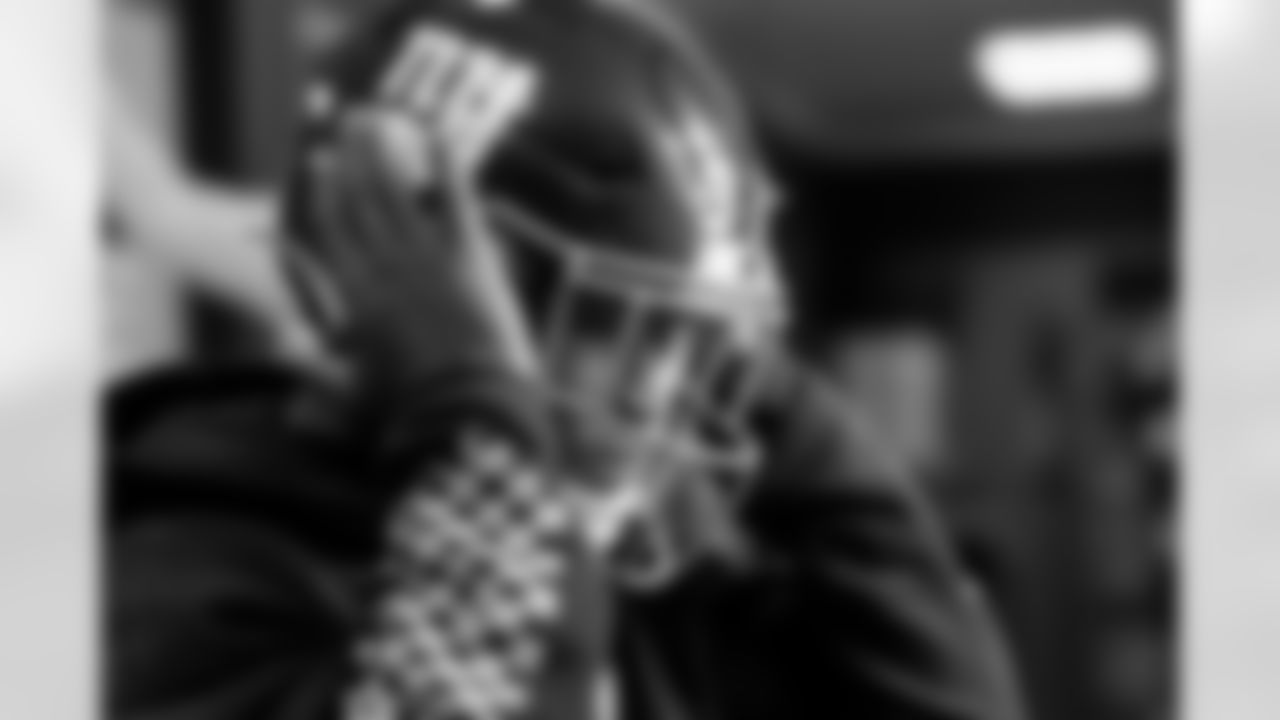
S Tyler Nubin
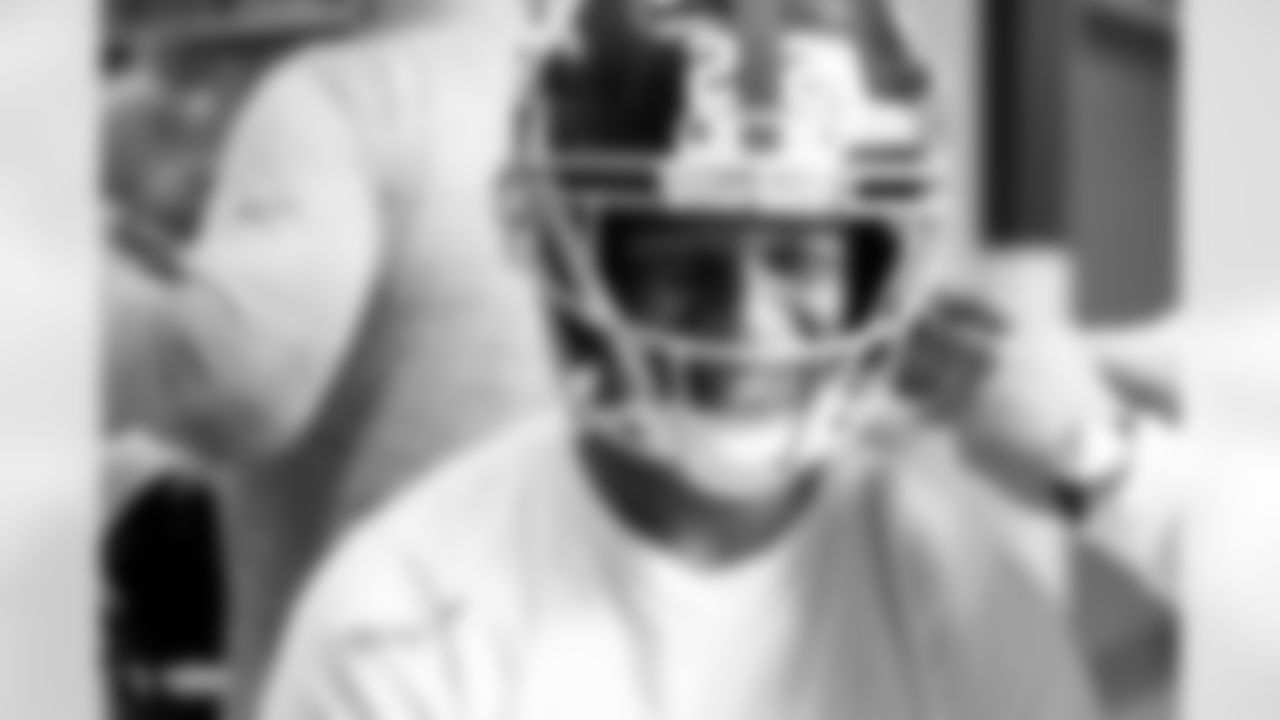
CB Dru Phillips
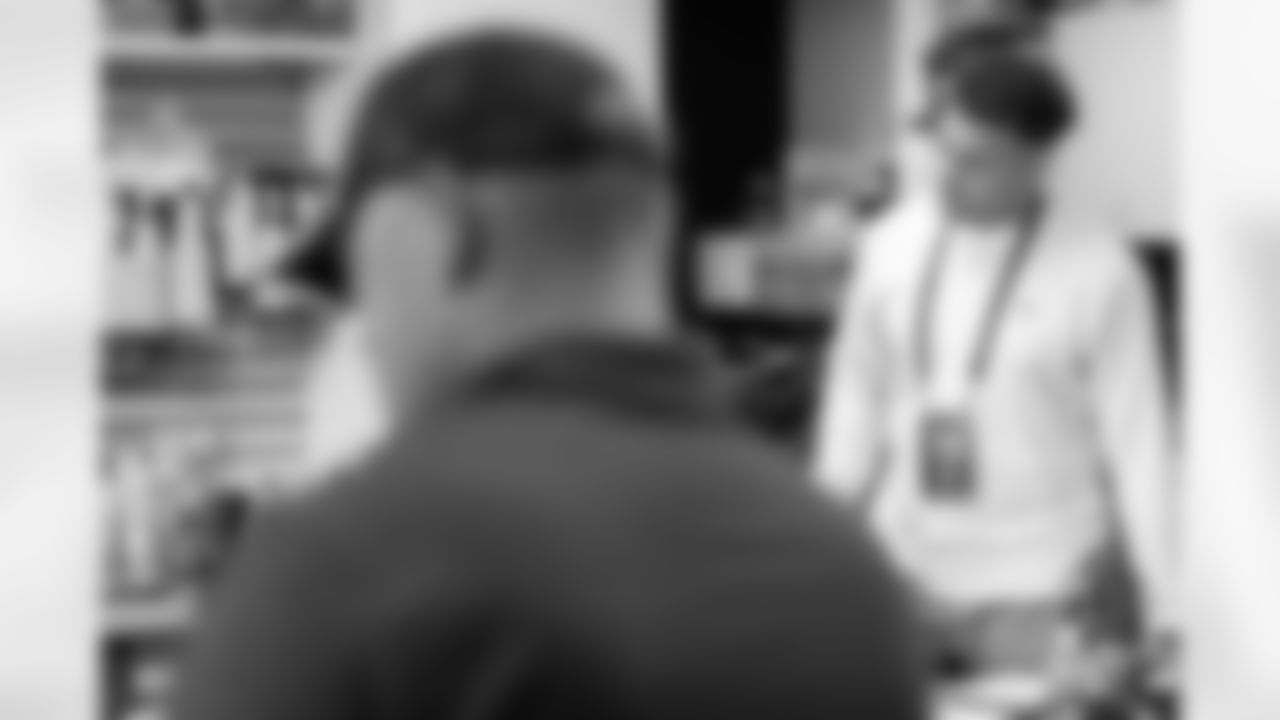
TE Theo Johnson
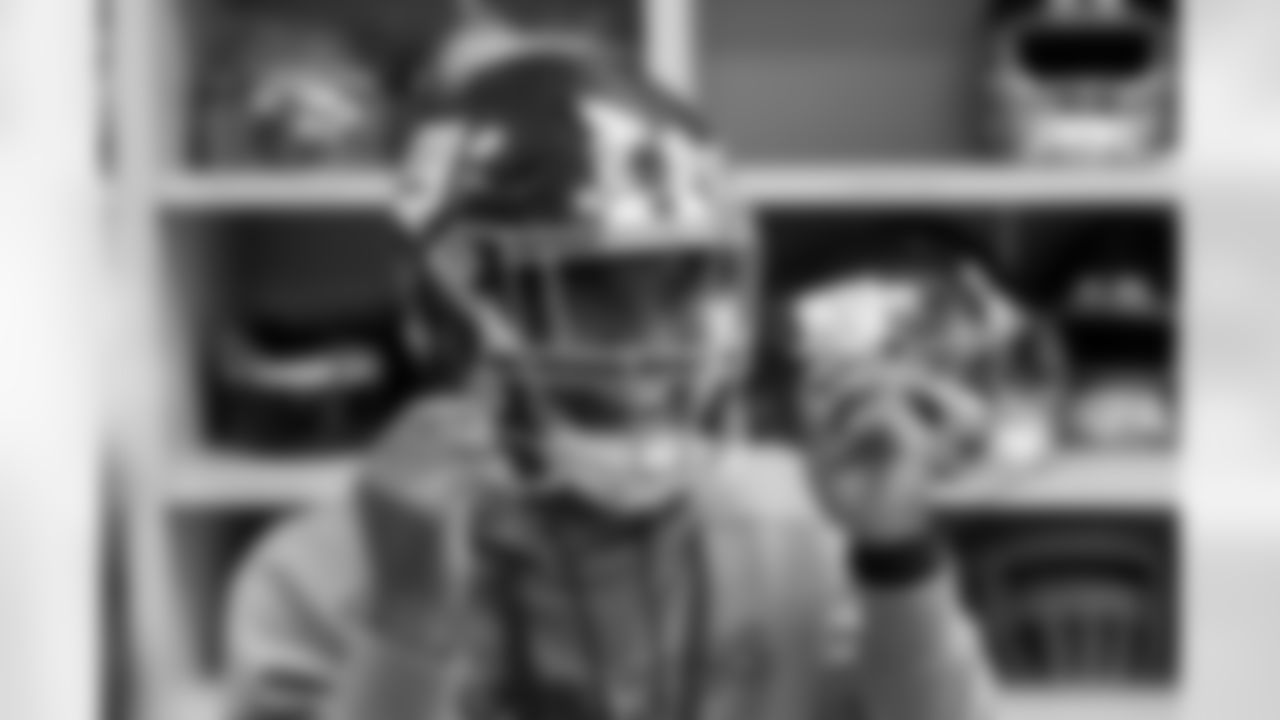
RB Tyrone Tracy Jr.
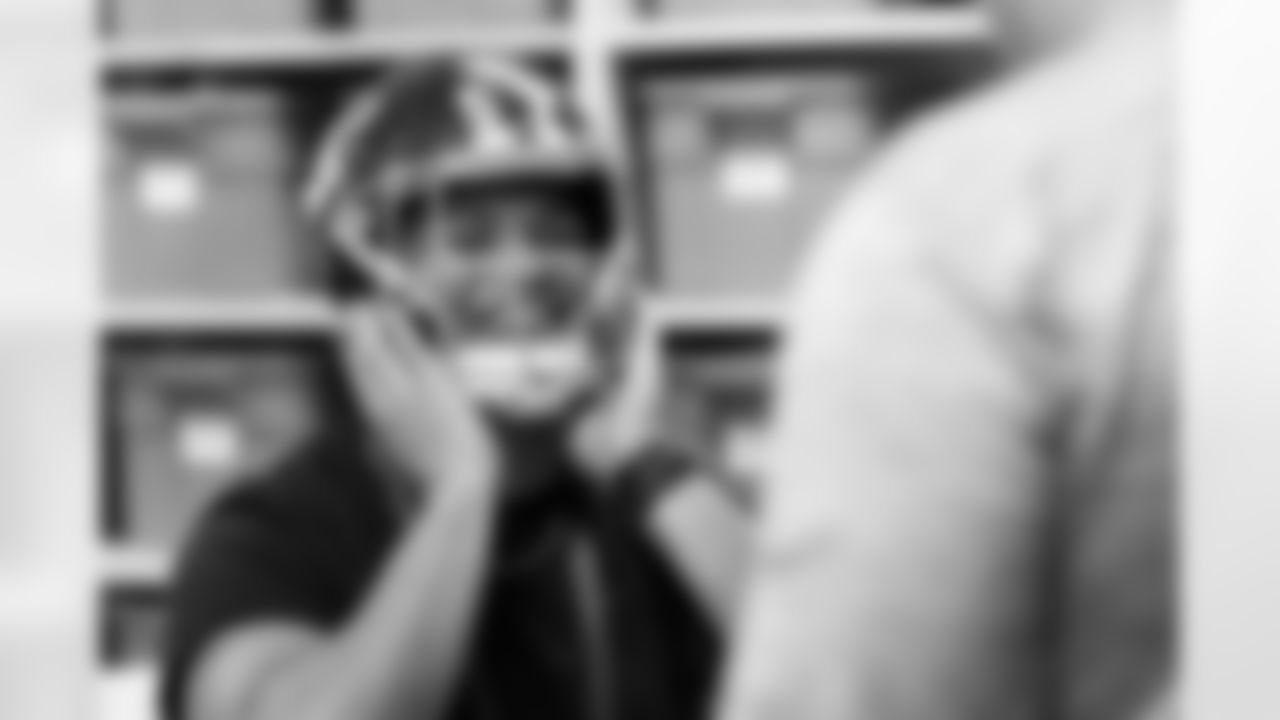
LB Darius Muasau
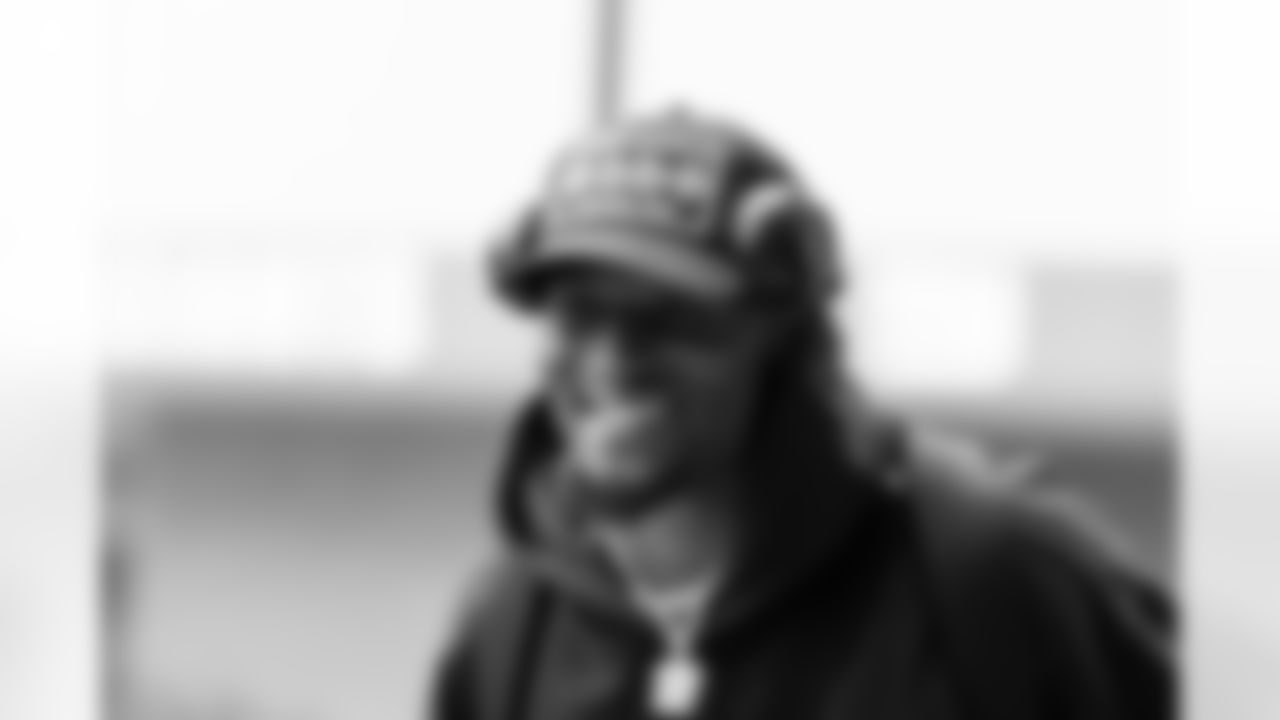
S Tyler Nubin

WR Malik Nabers
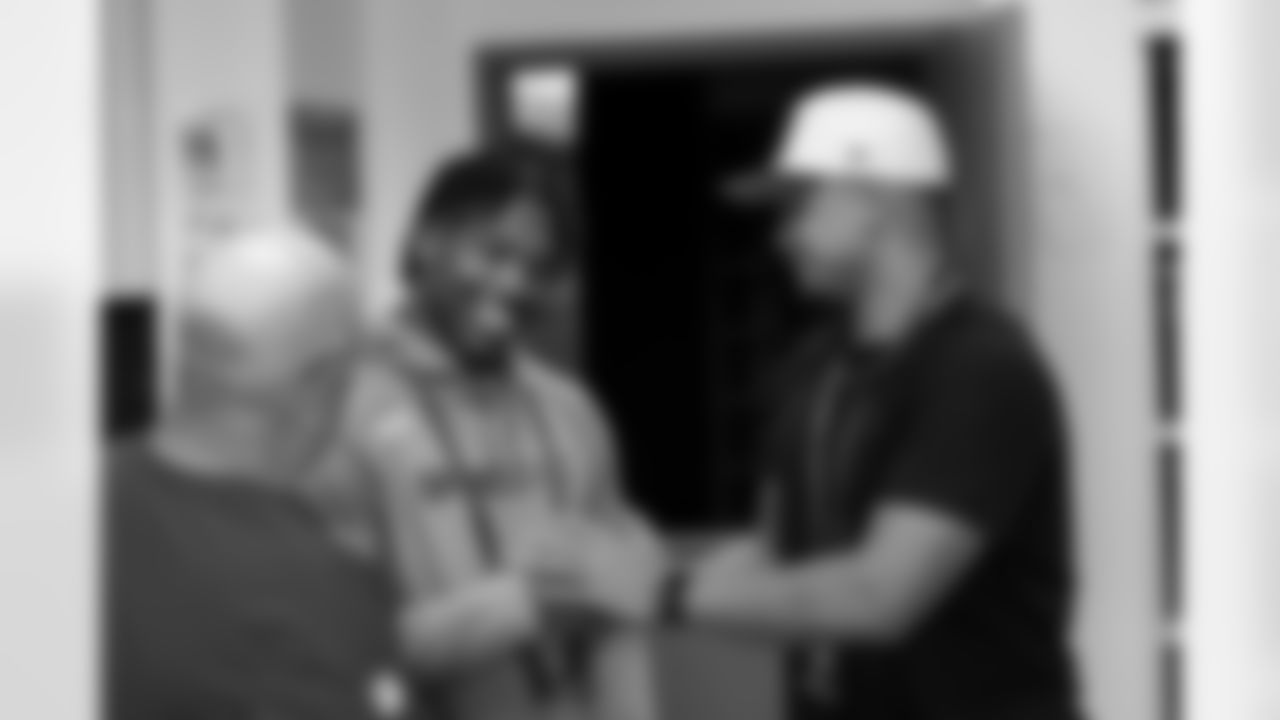
RB Tyrone Tracy Jr., LB Darius Muasau

TE Theo Johnson
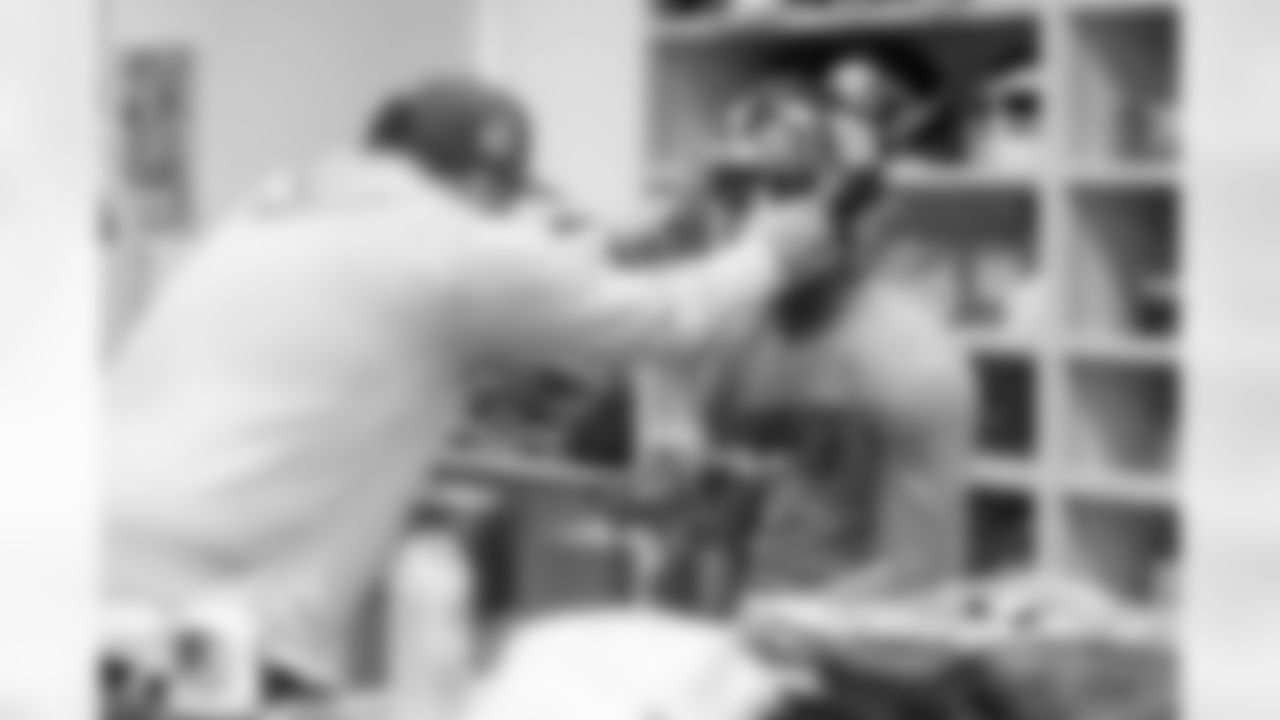
WR Malik Nabers
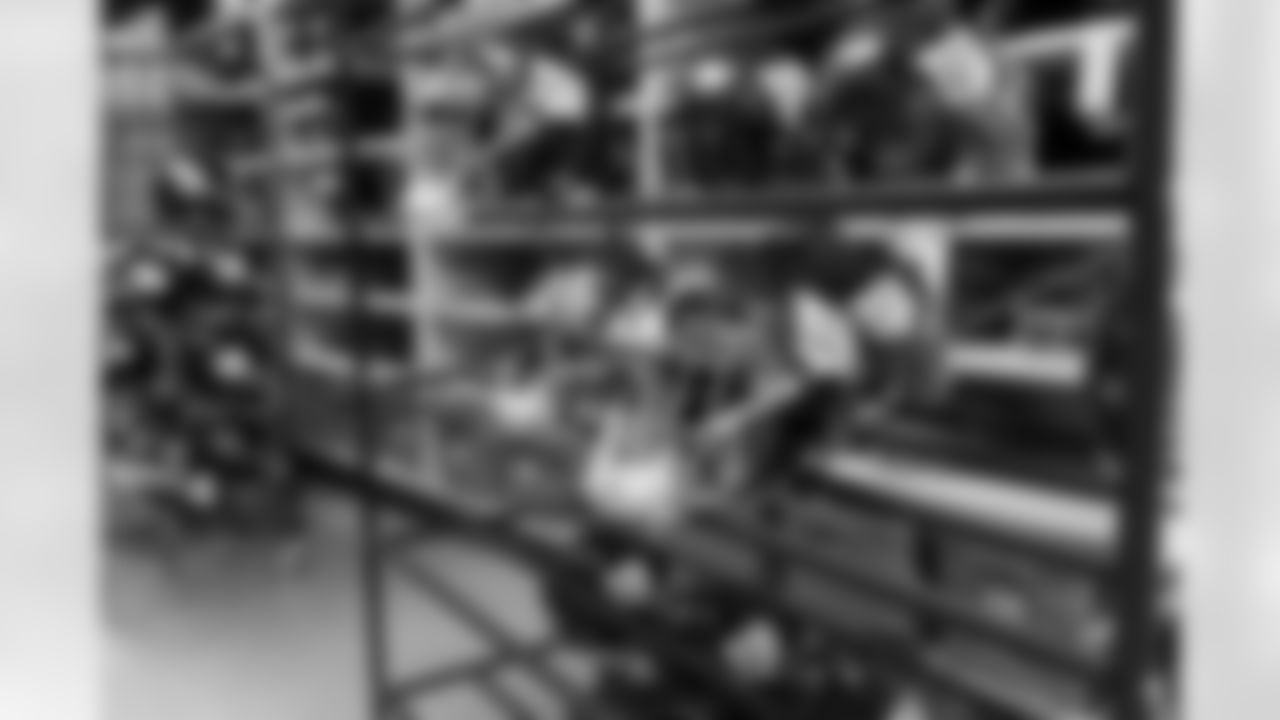
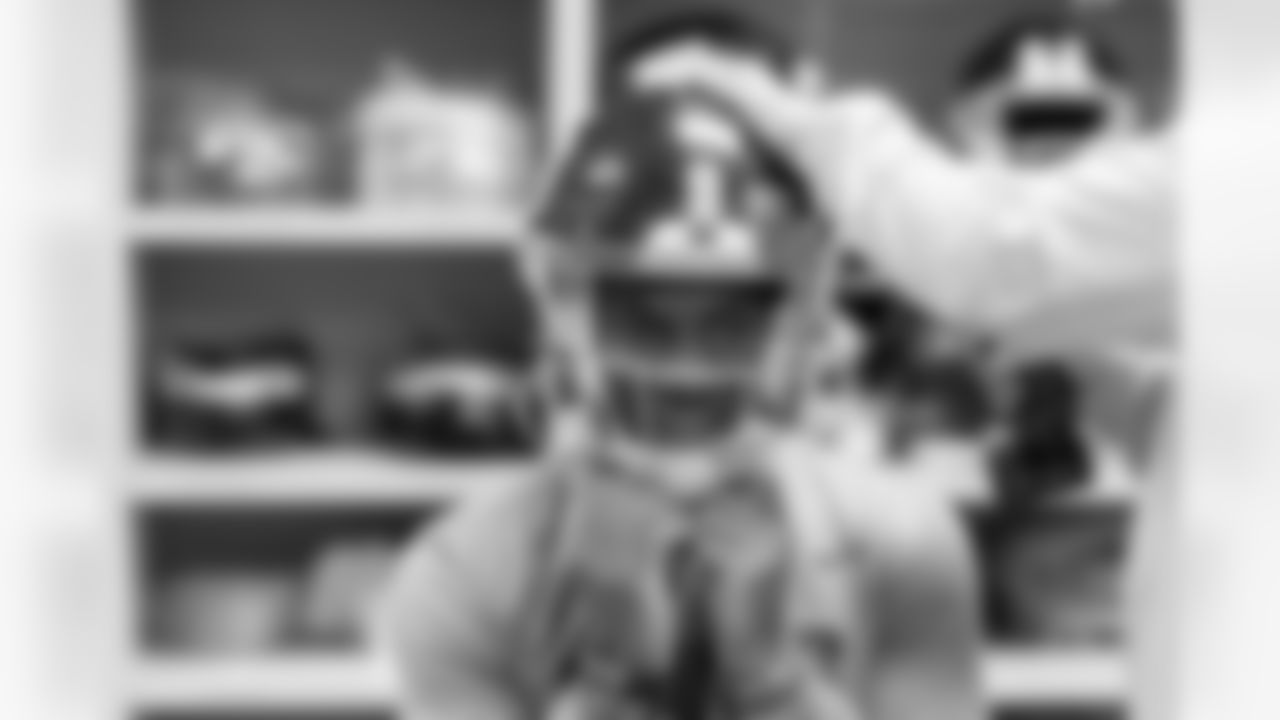
WR Malik Nabers
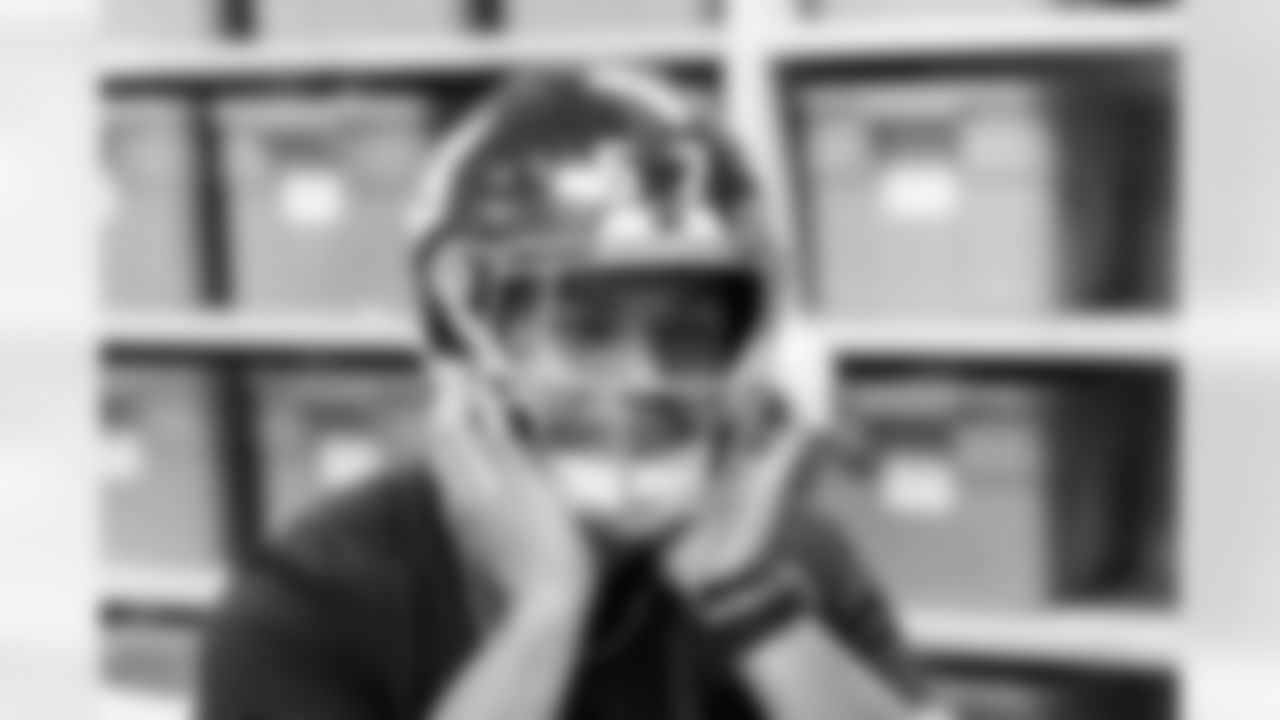
LB Darius Muasau
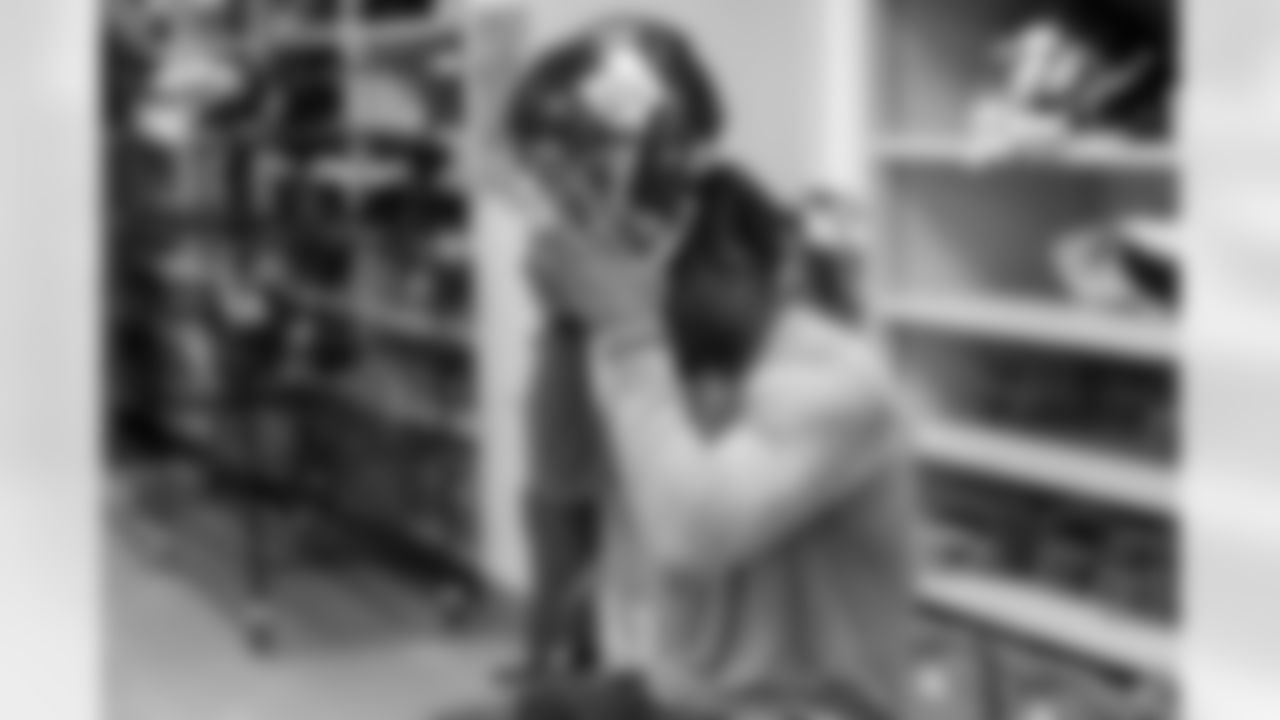
WR Malik Nabers
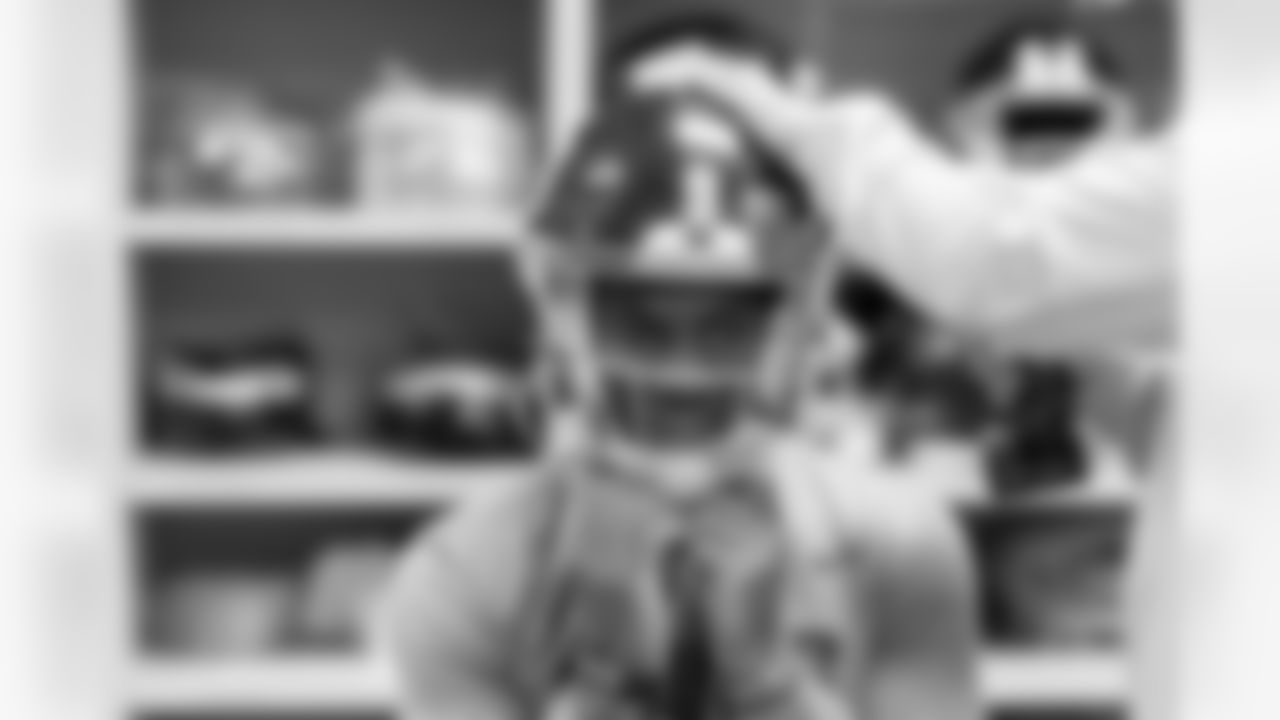
WR Malik Nabers
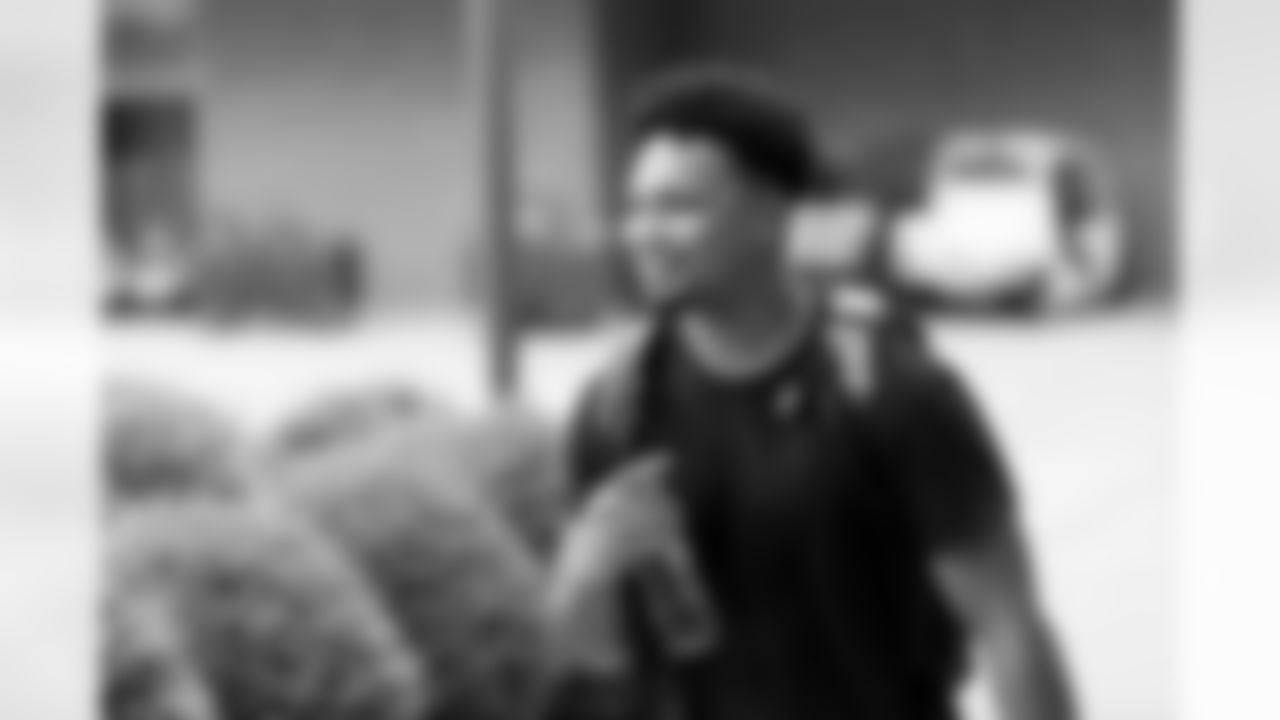
LB Darius Muasau
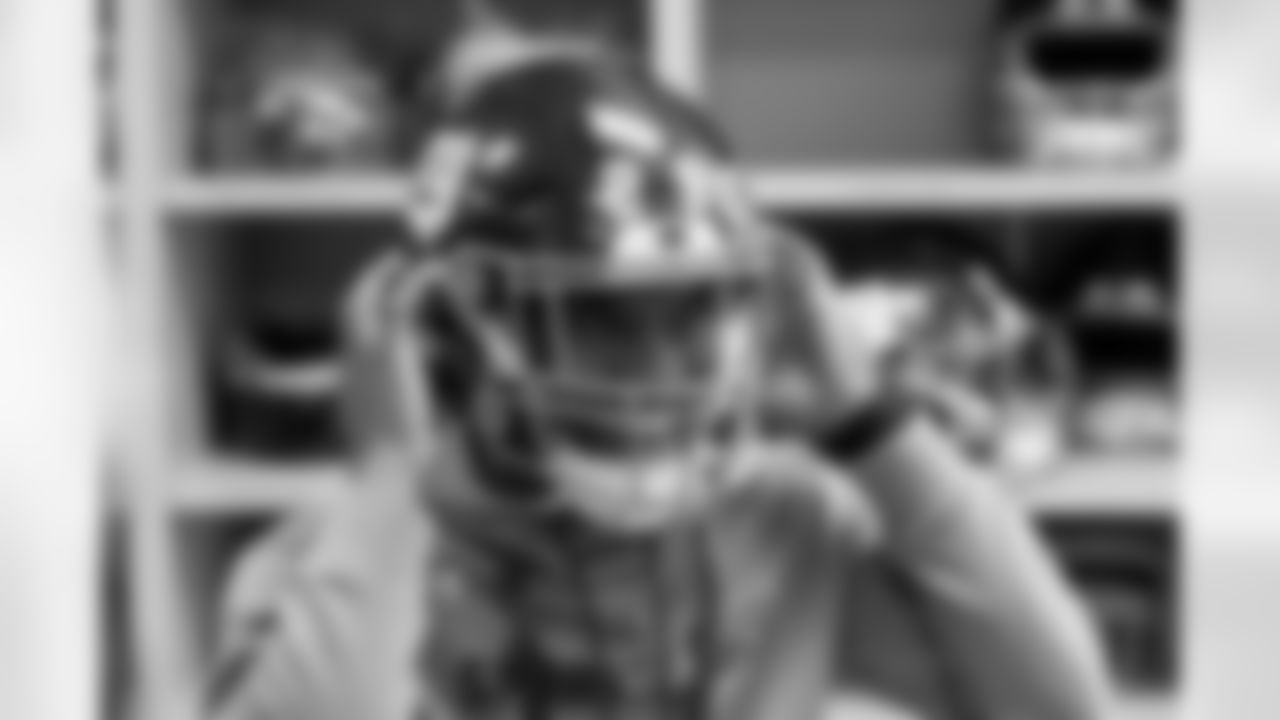
RB Tyrone Tracy Jr.
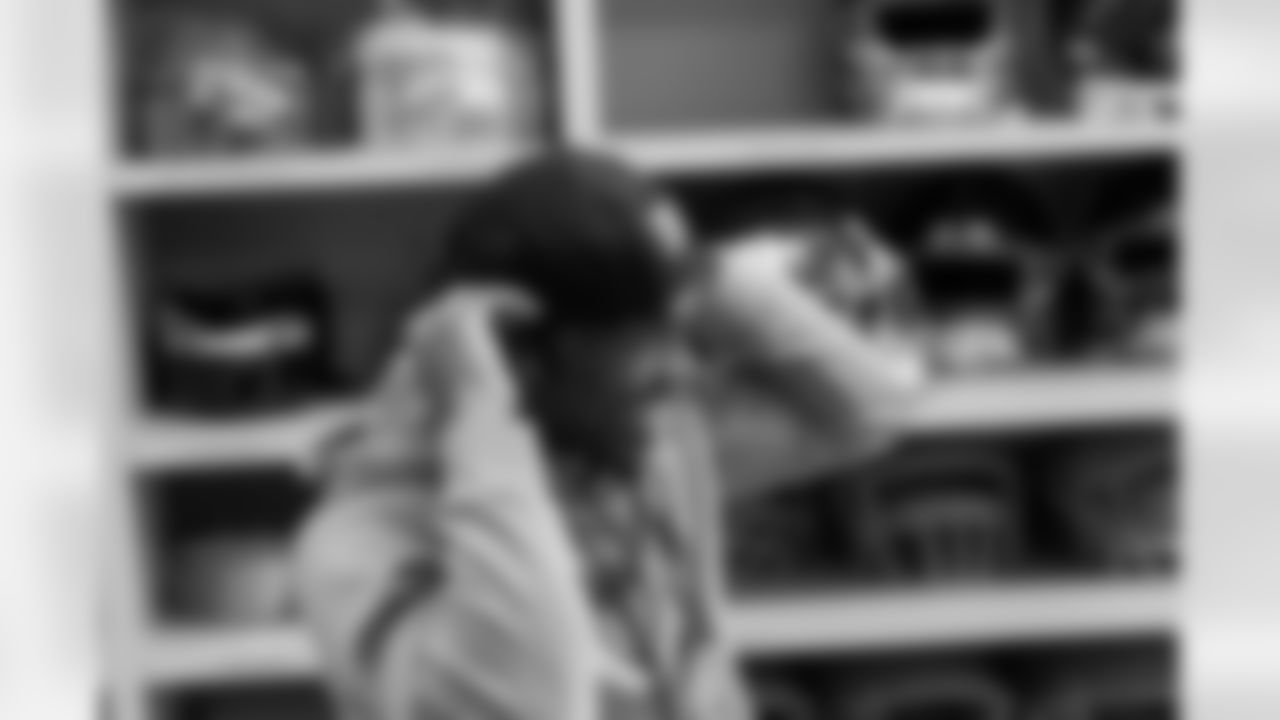
RB Tyrone Tracy Jr.
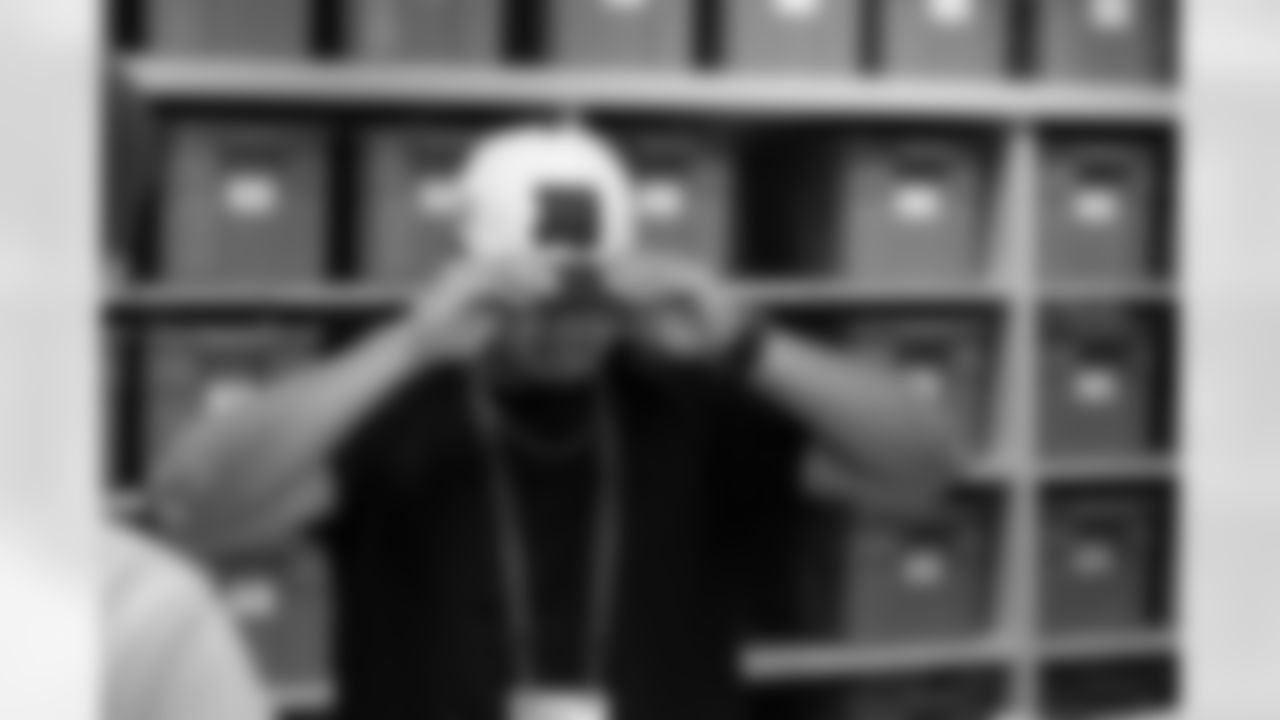
LB Darius Muasau

LB Darius Muasau
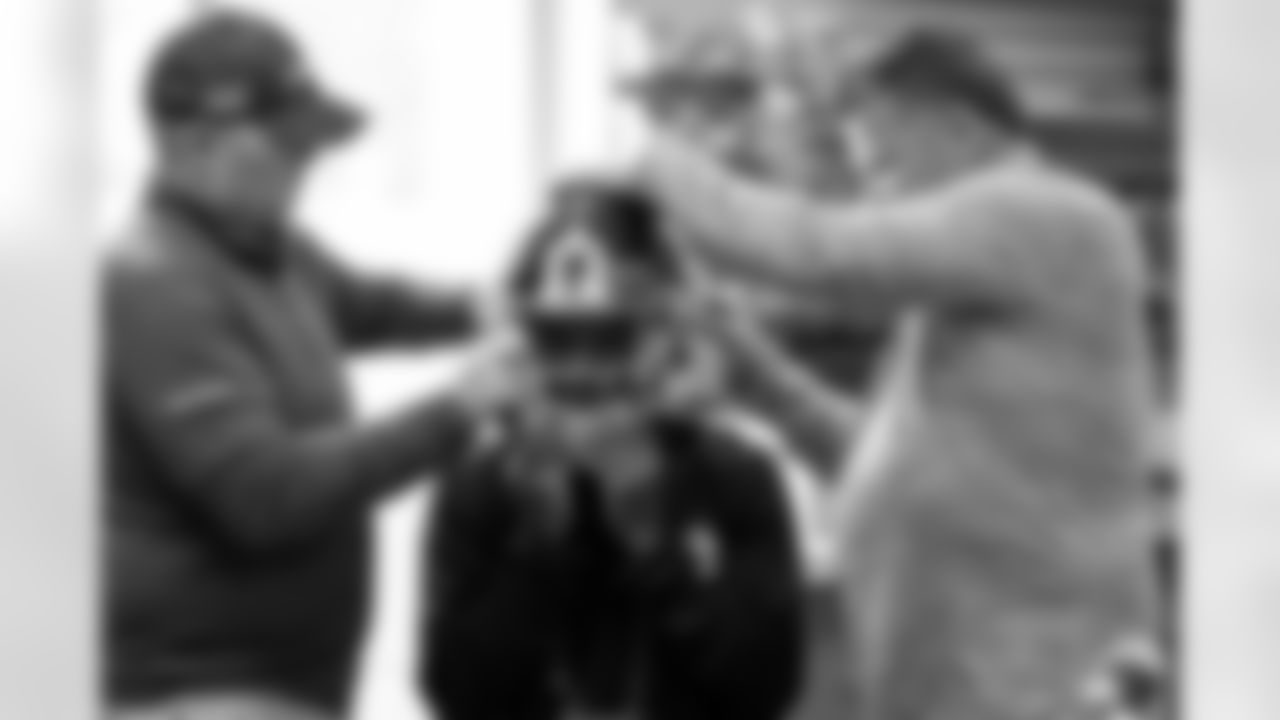
Alex Johnson
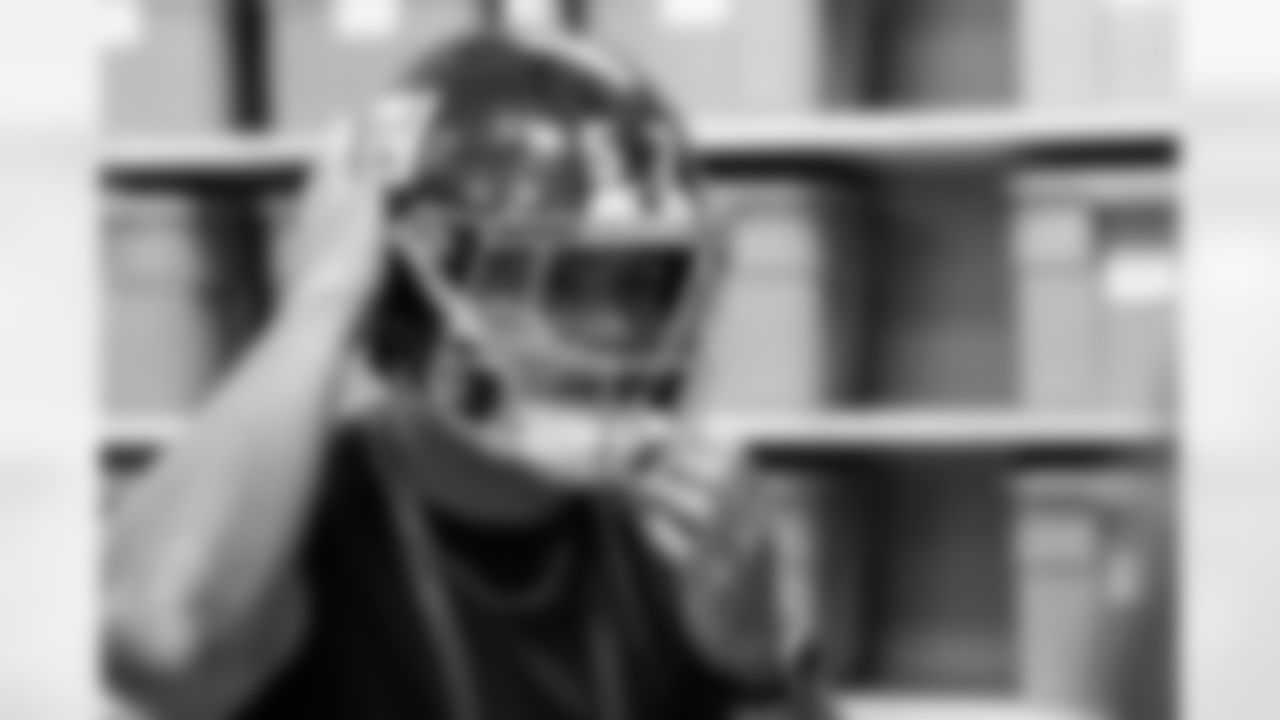
LB Darius Muasau

LB Darius Muasau
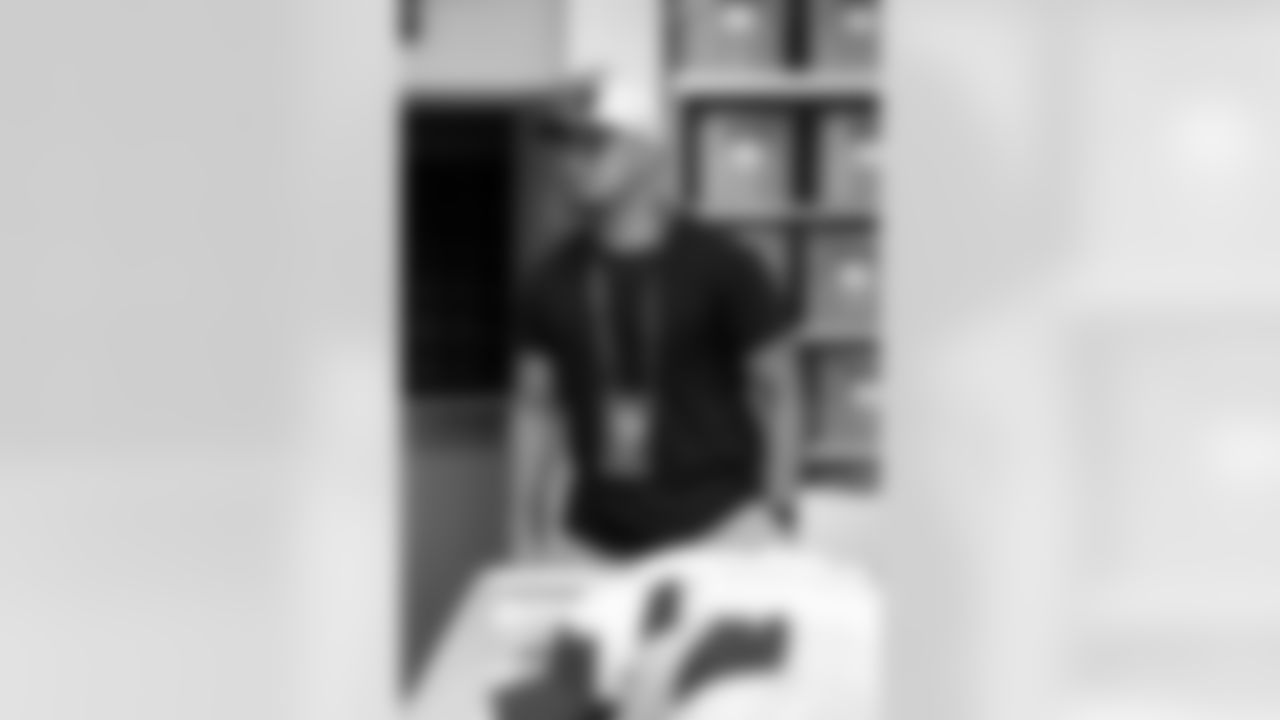
LB Darius Muasau
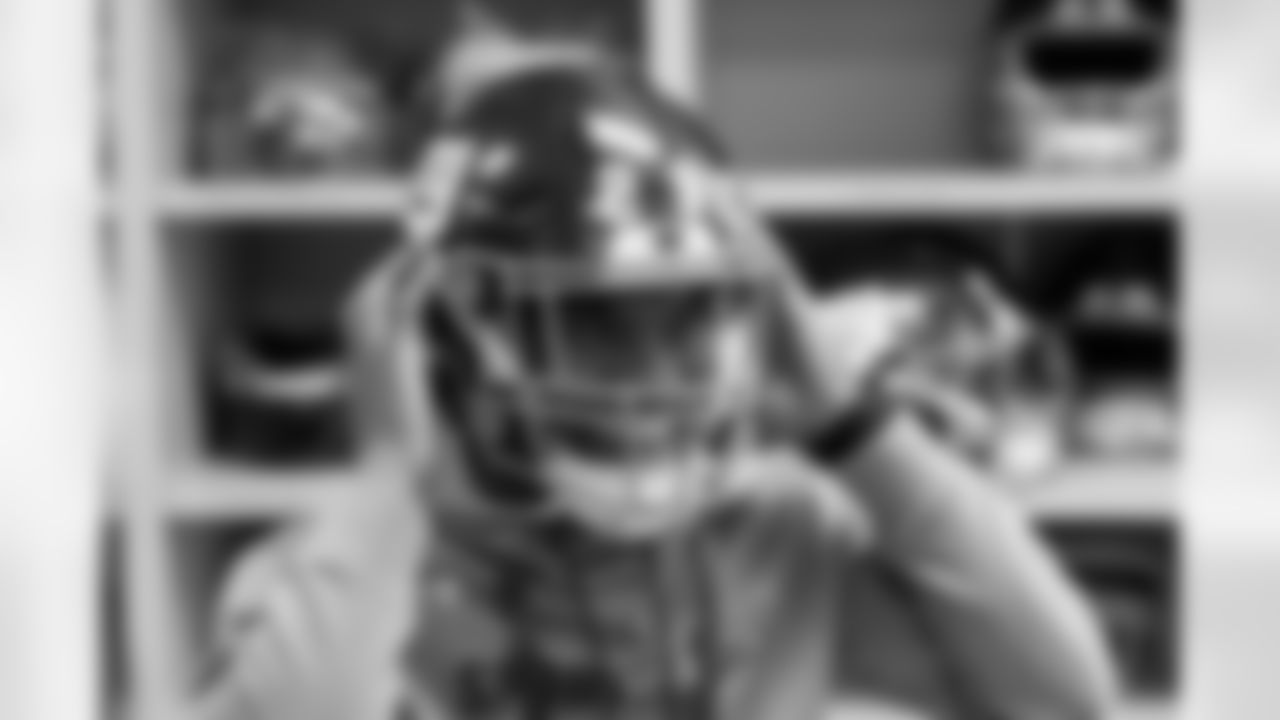
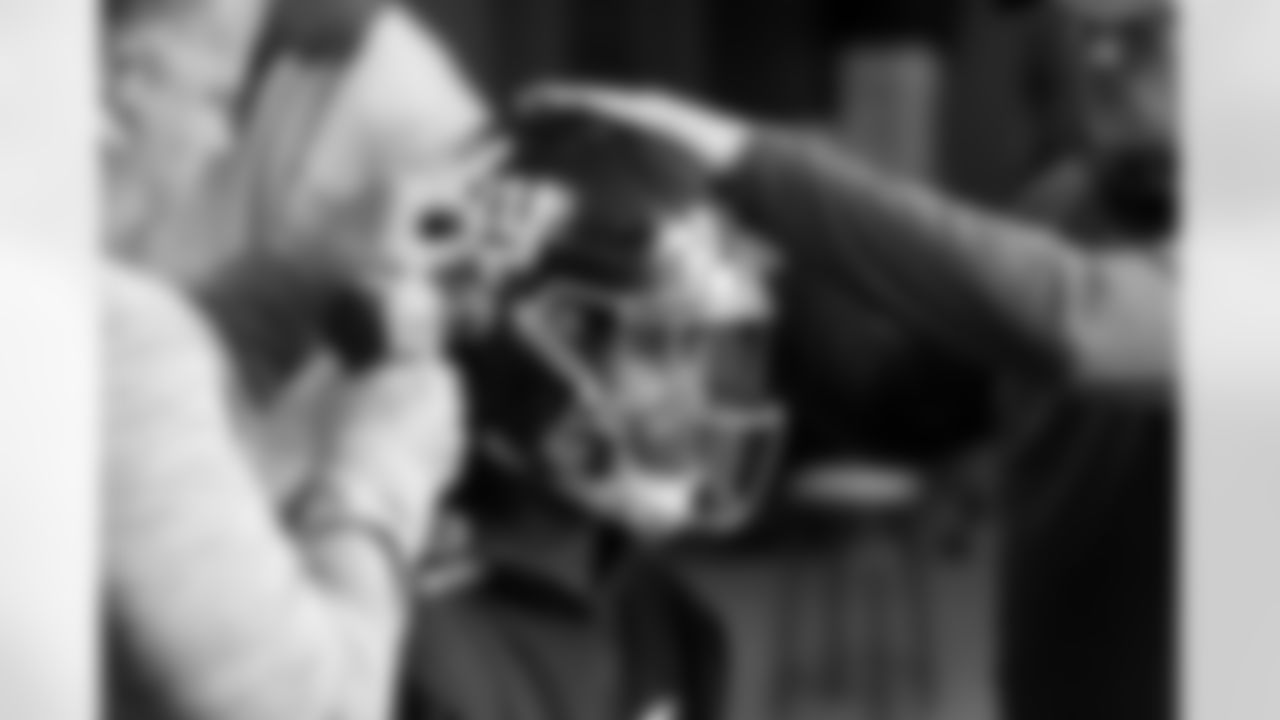
S Tyler Nubin
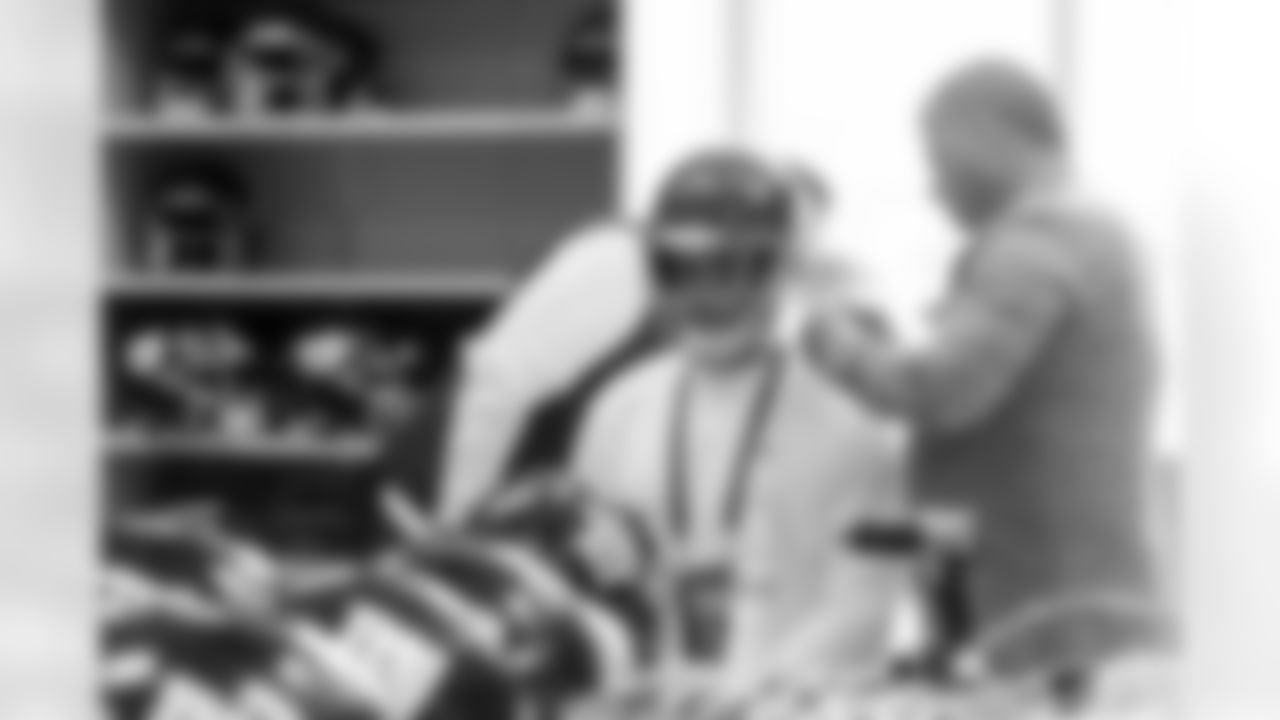
TE Theo Johnson
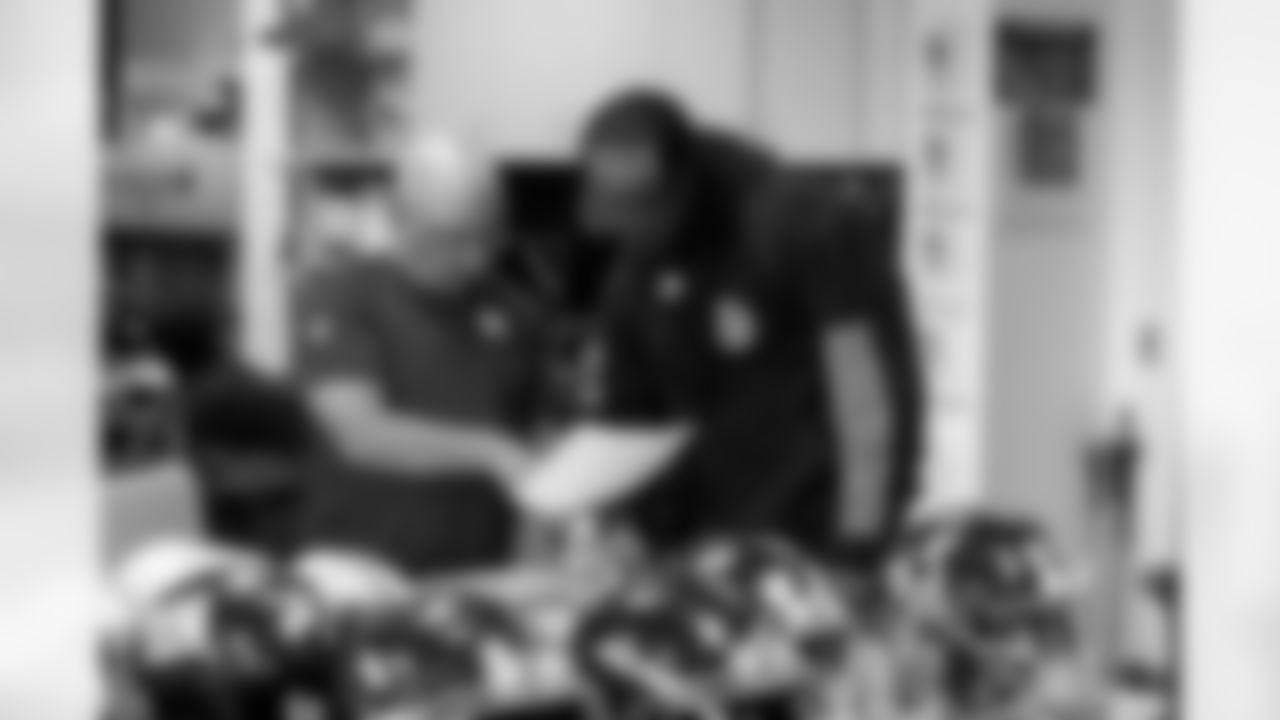
S Tyler Nubin
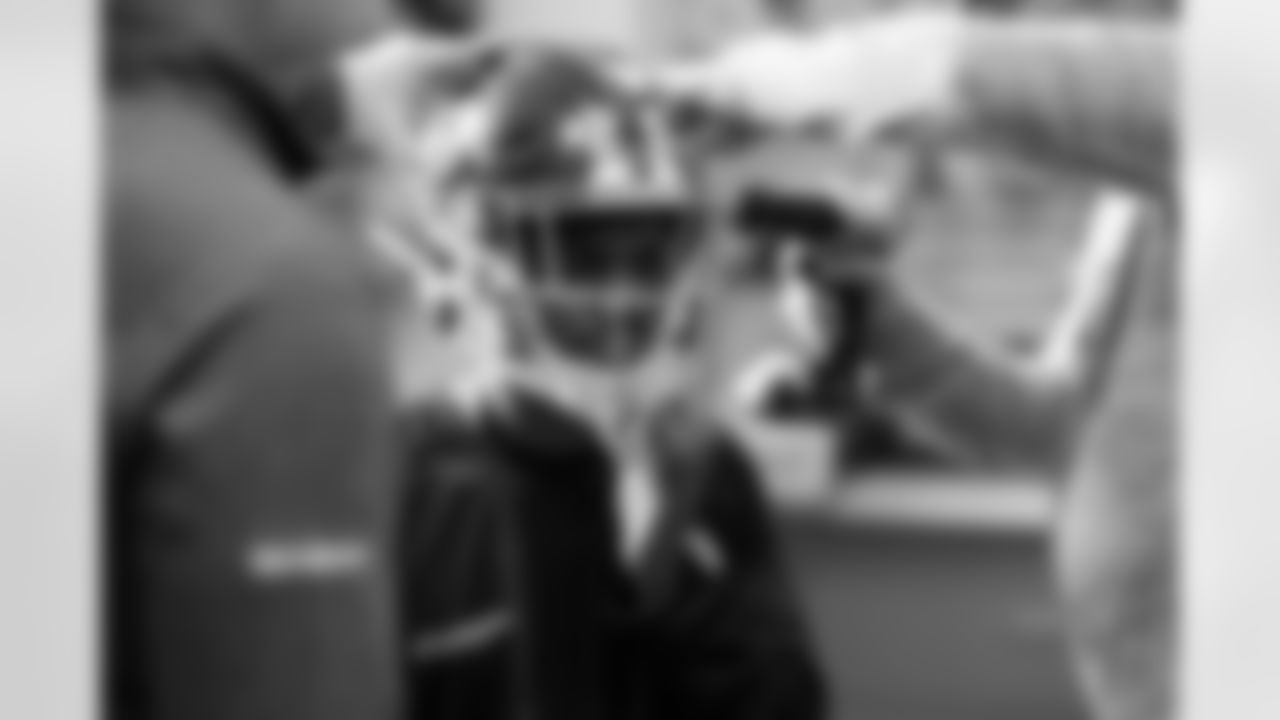
Alex Johnson
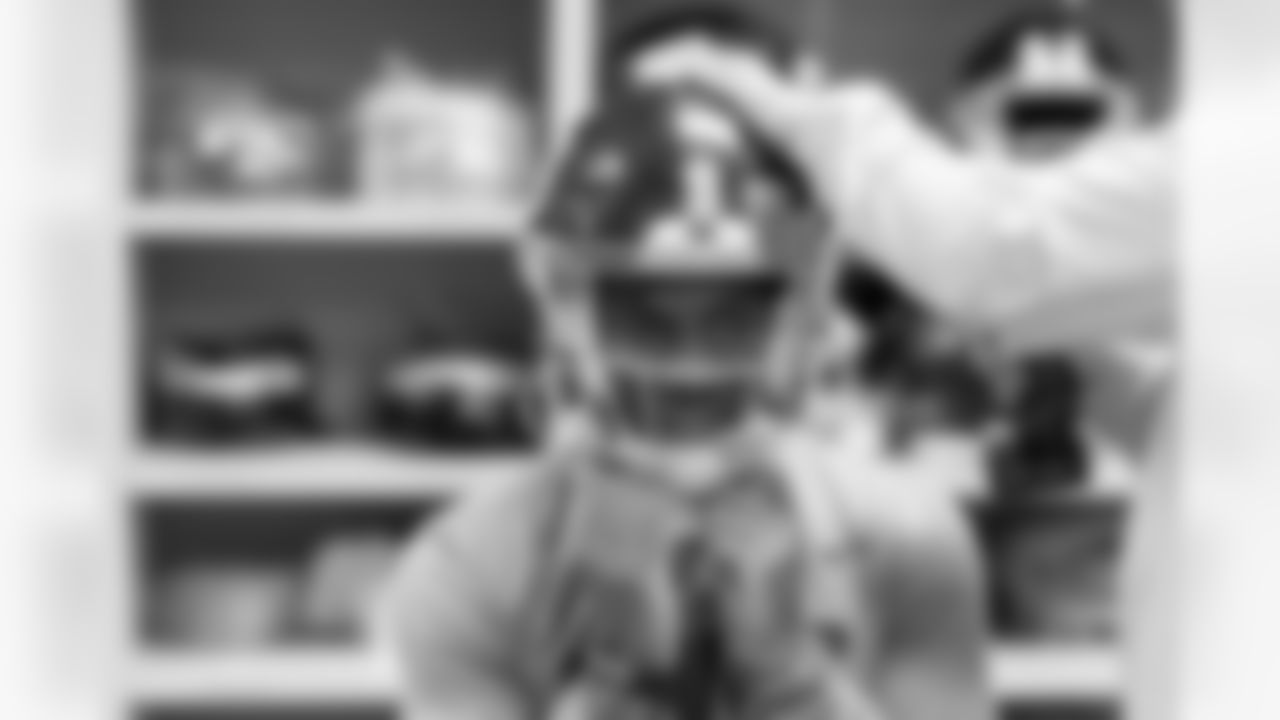
WR Malik Nabers
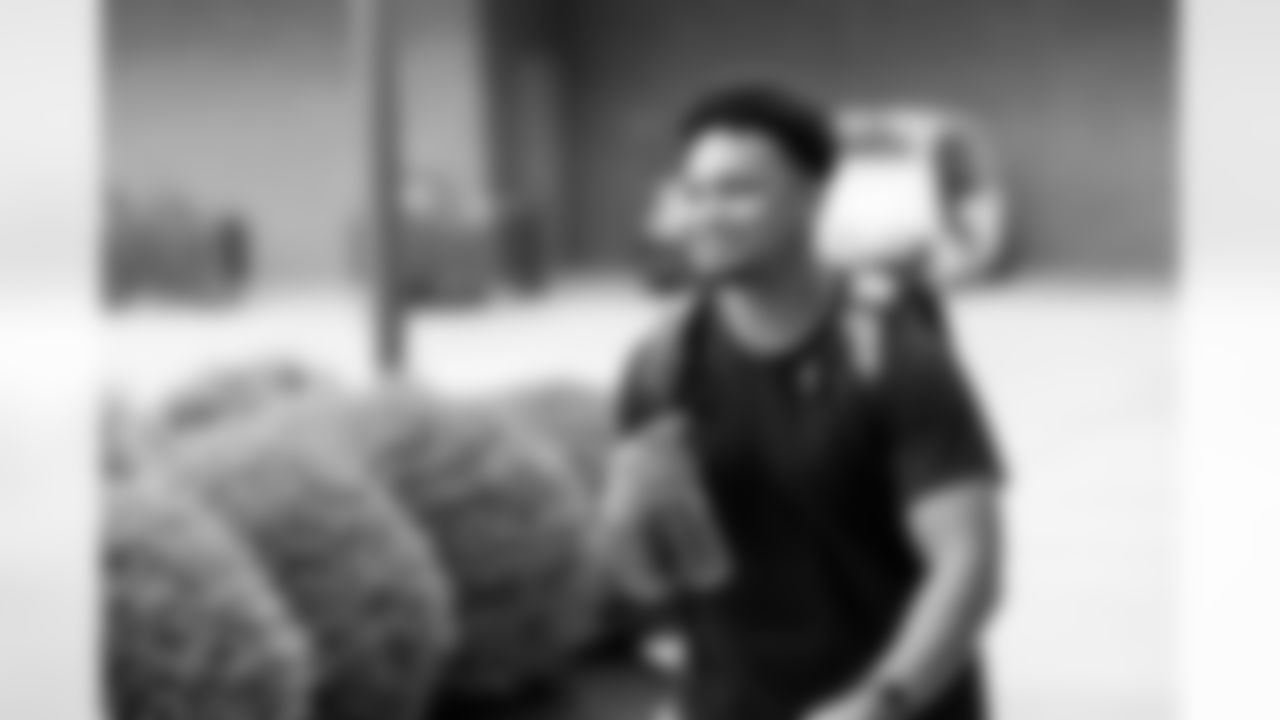
LB Darius Muasau

S Tyler Nubin

S Tyler Nubin

TE Theo Johnson
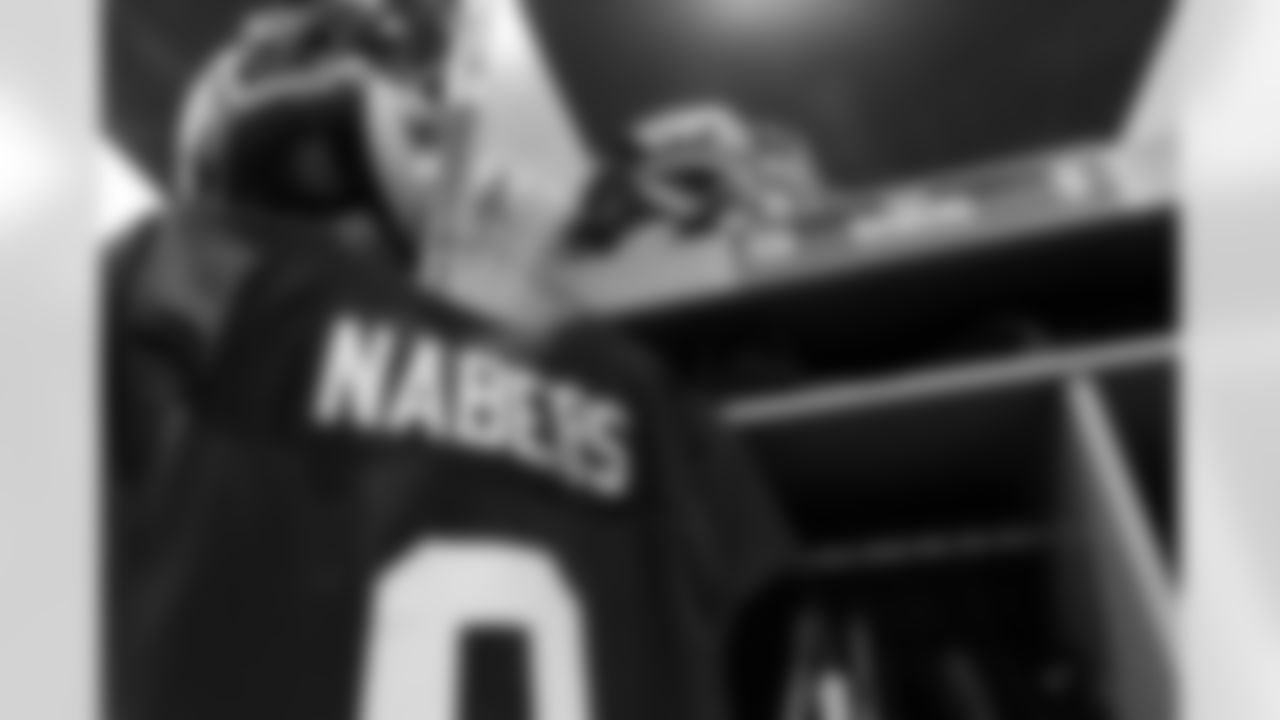
WR Malik Nabers (9)
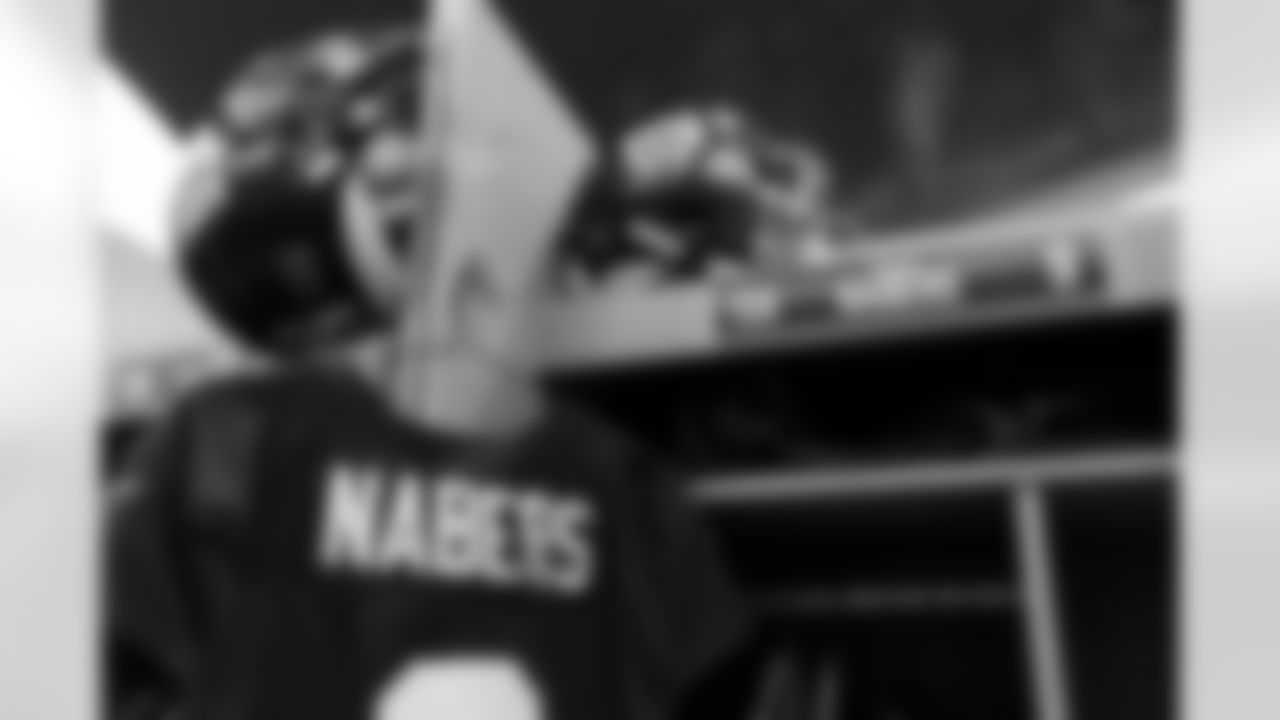
WR Malik Nabers (9)
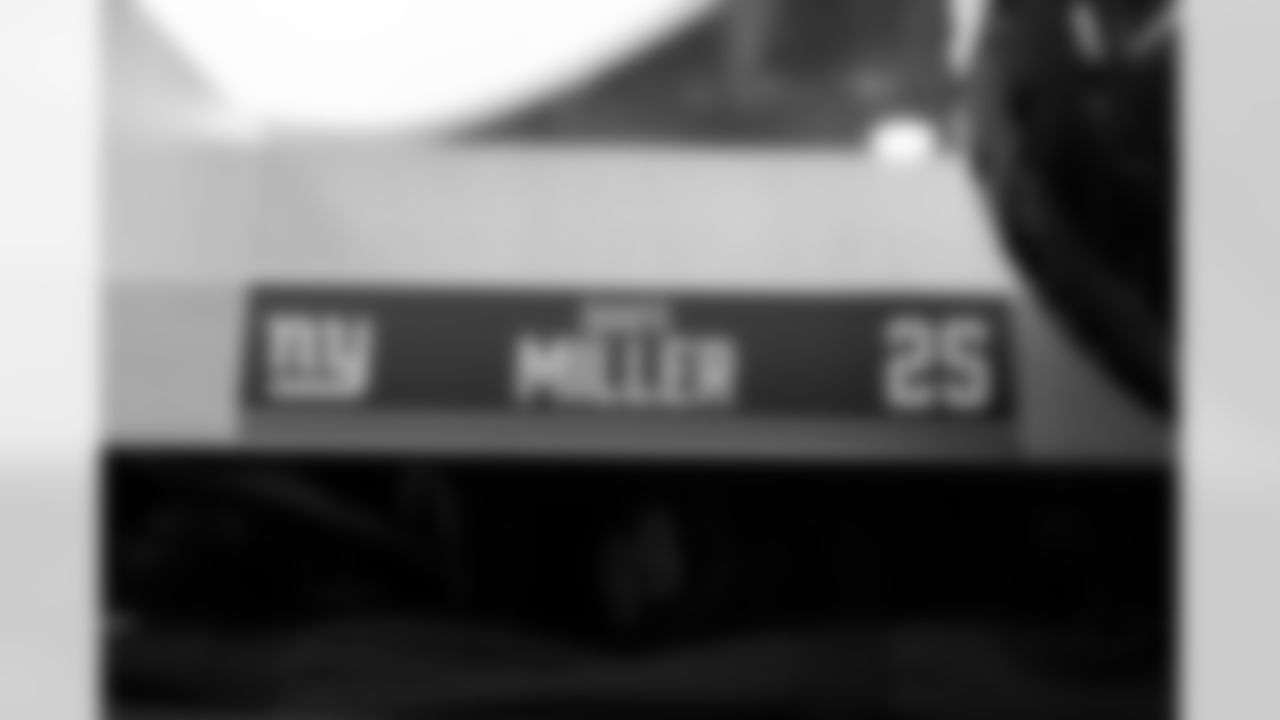
Dante Miller (25)
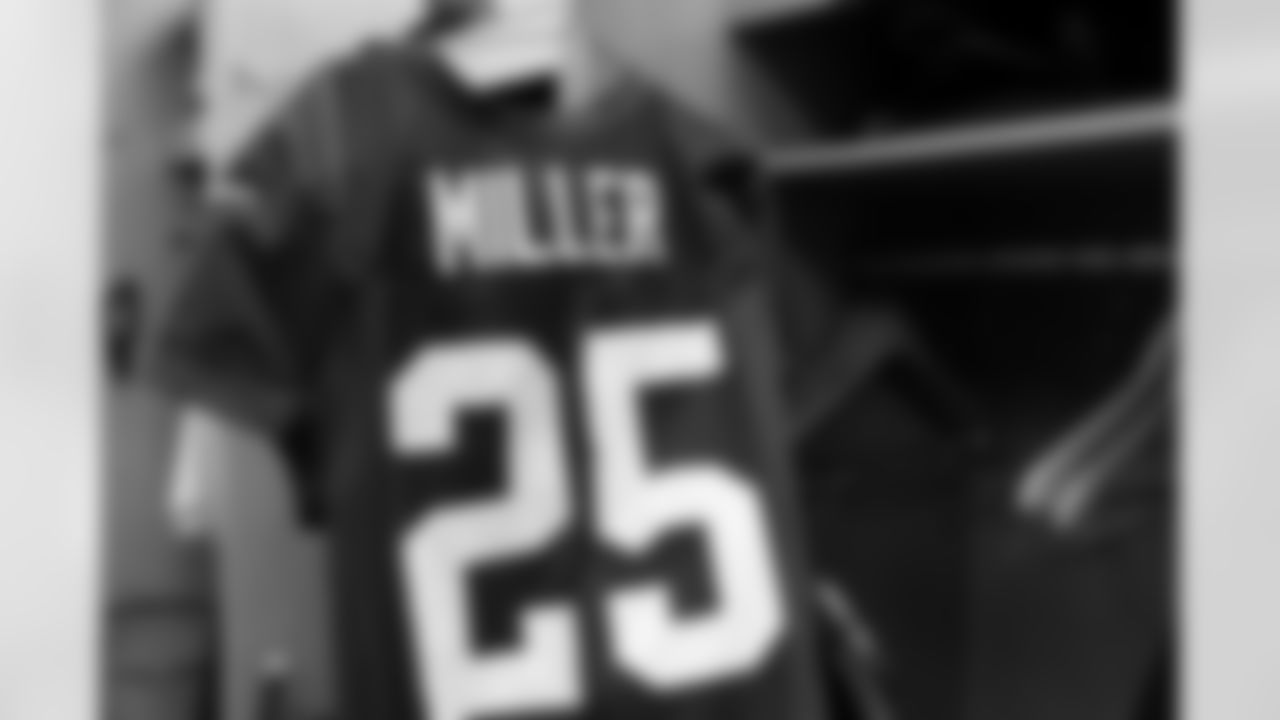
Dante Miller (25)
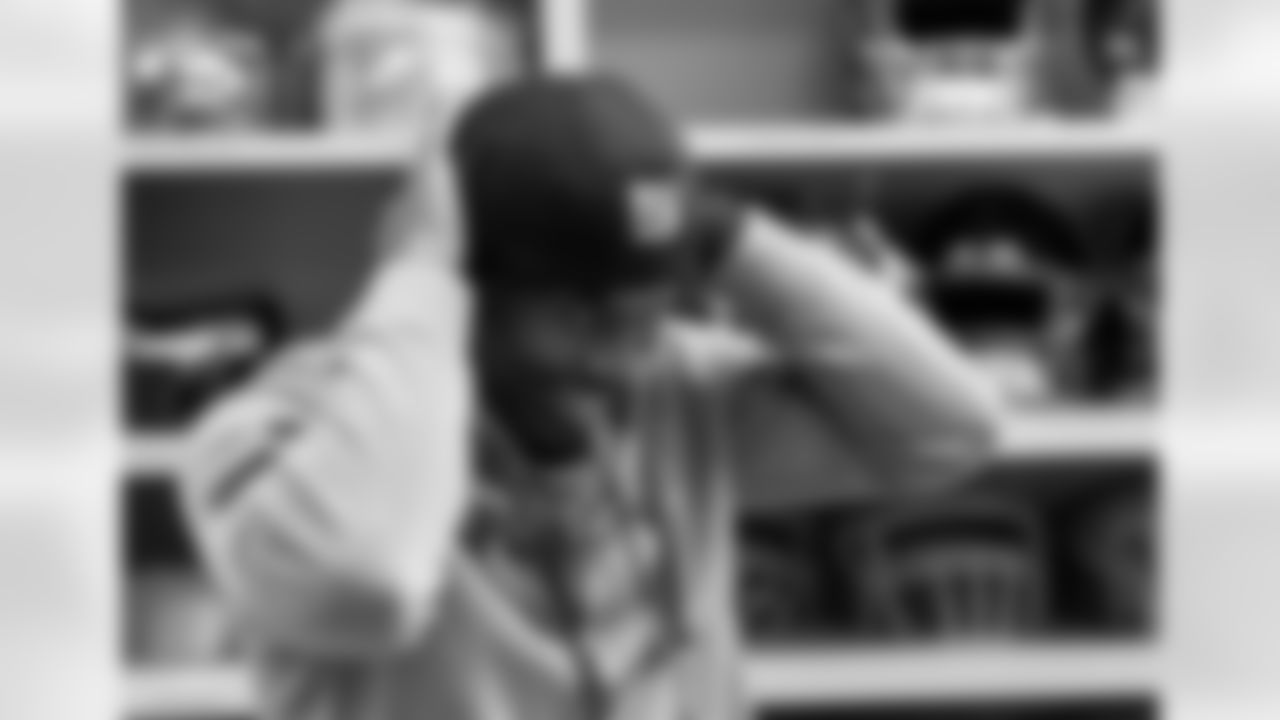
RB Tyrone Tracy Jr.
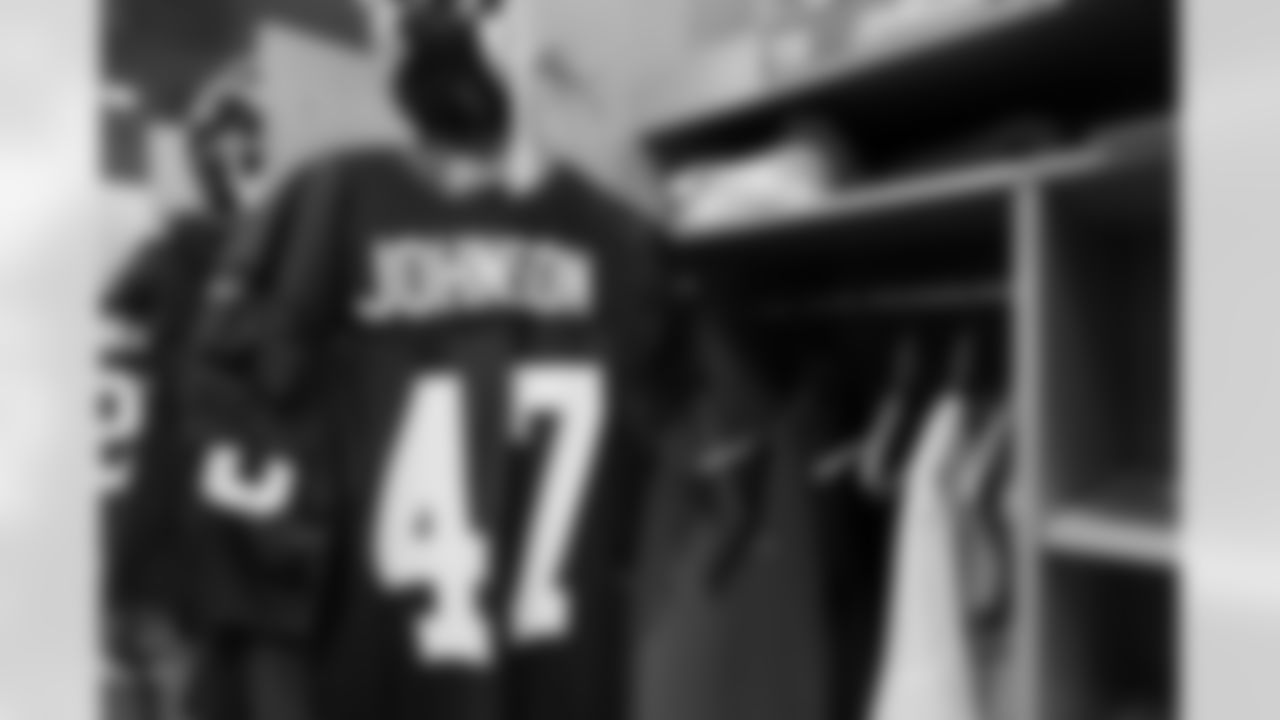
TE Theo Johnson (47)
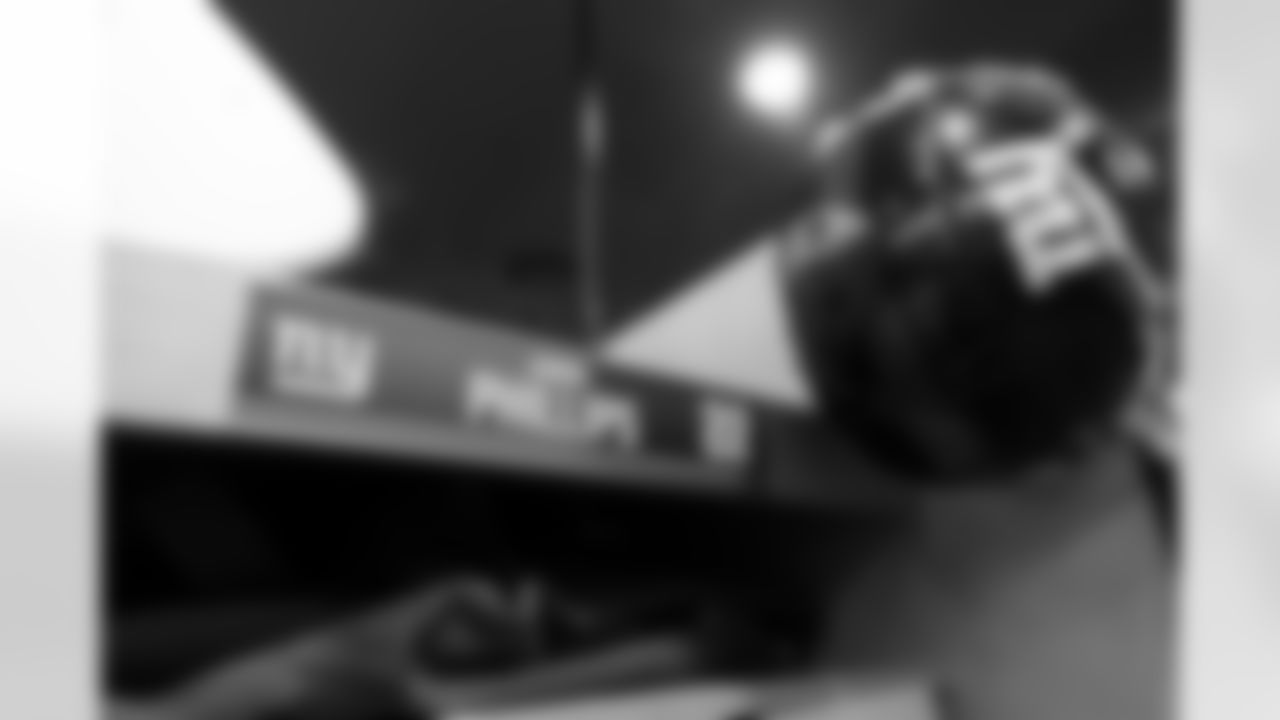
CB Andru Phillips (22)
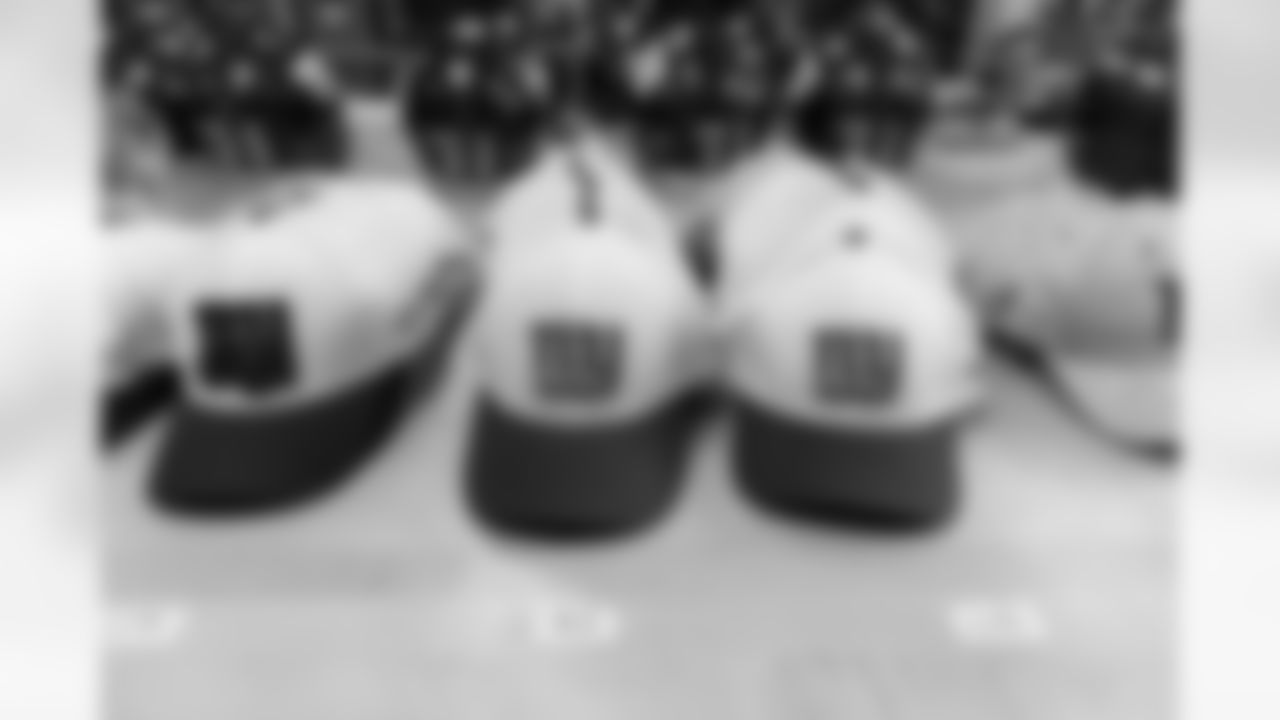
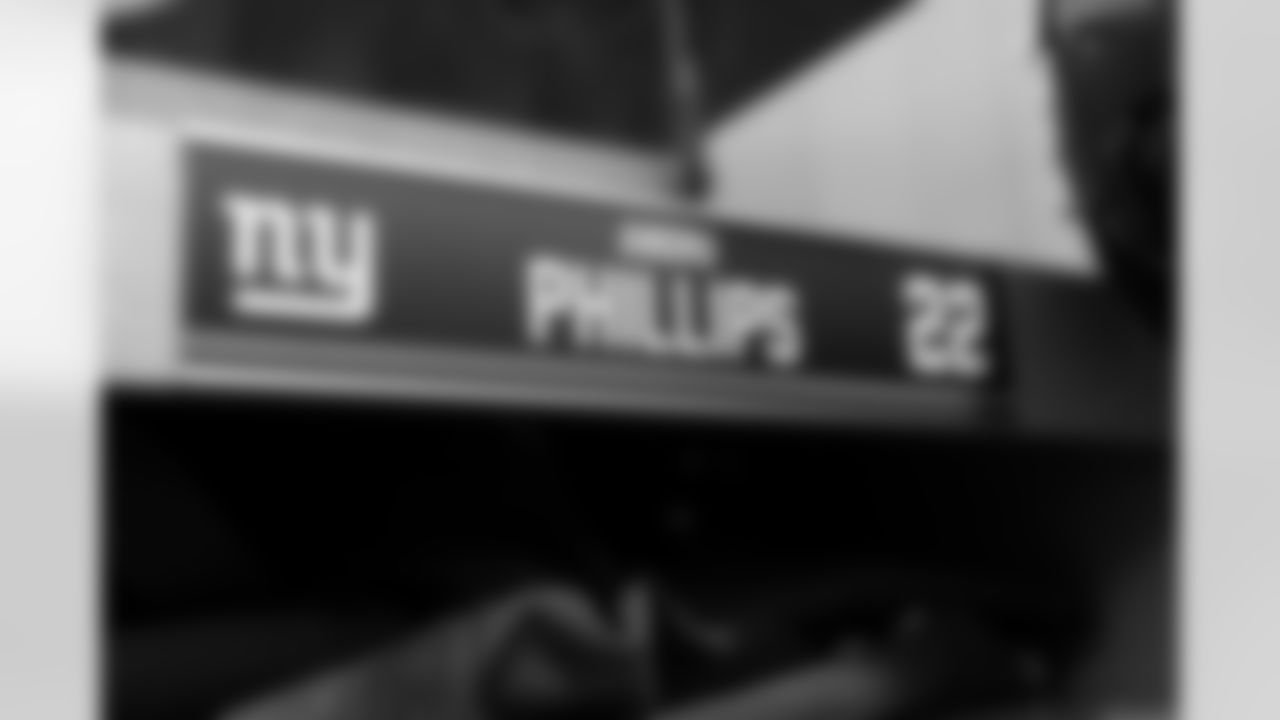
CB Andru Phillips (22)
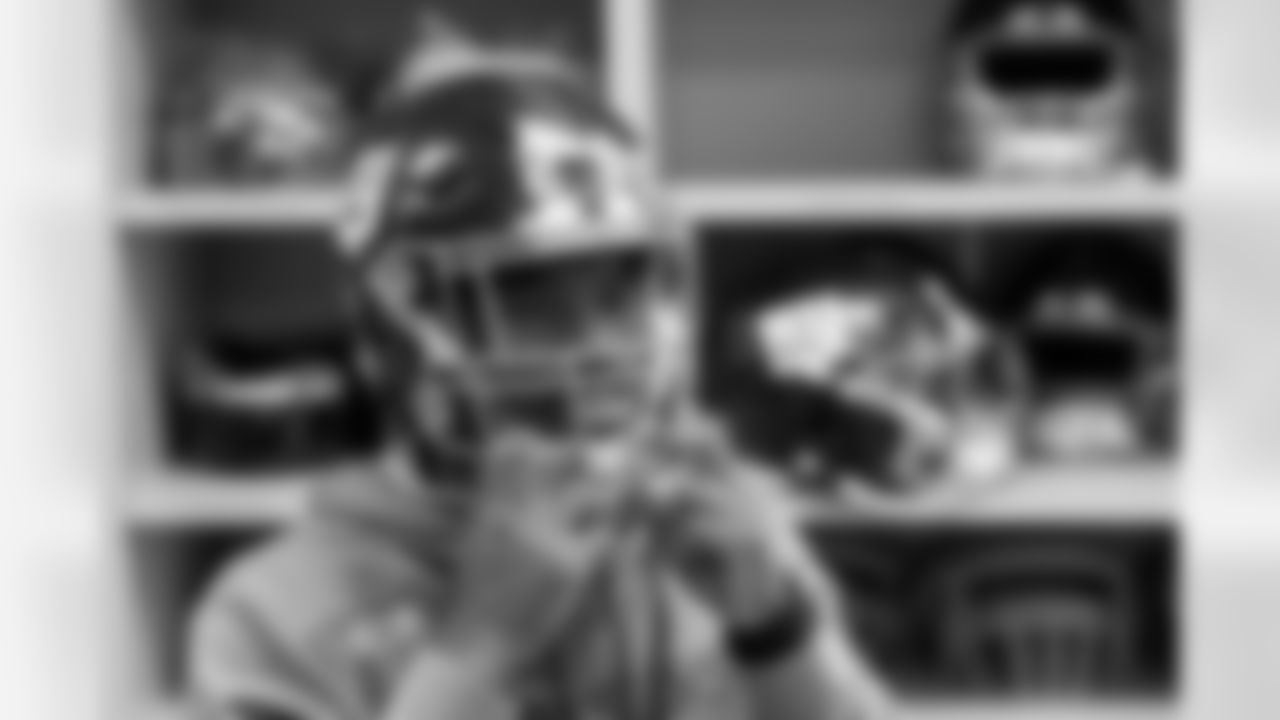
RB Tyrone Tracy Jr.
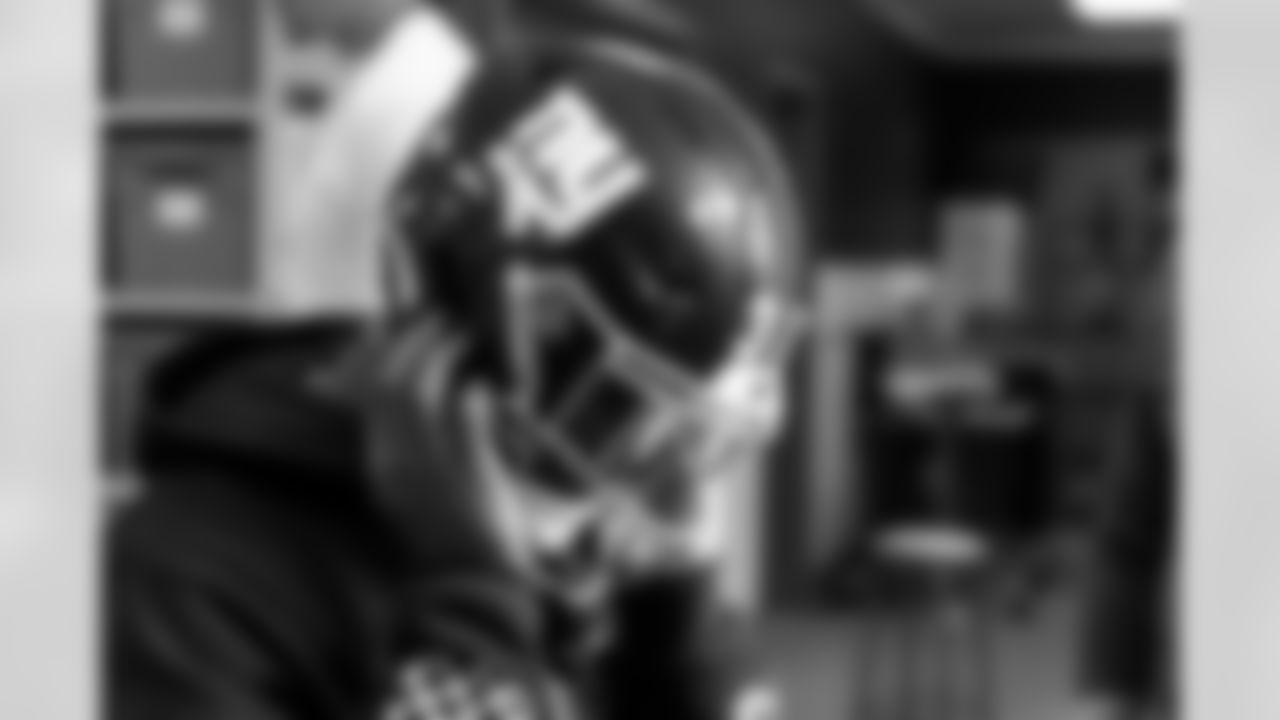
S Tyler Nubin
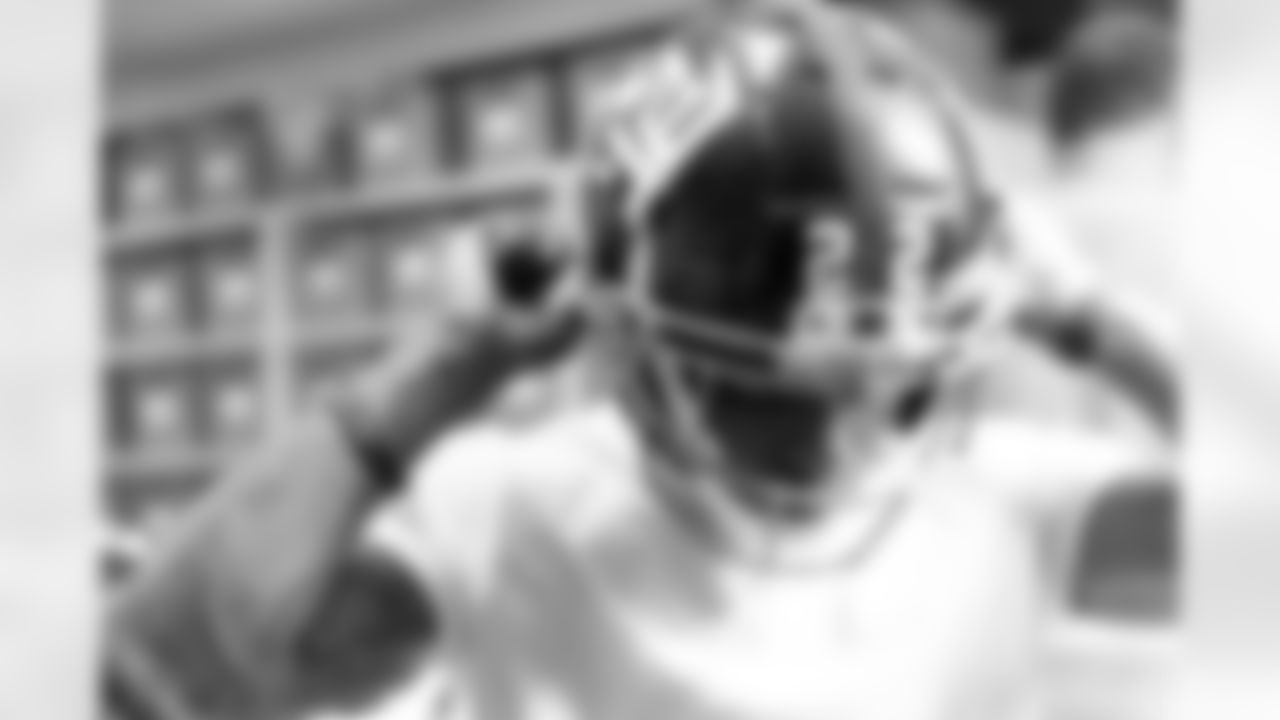
CB Dru Phillips
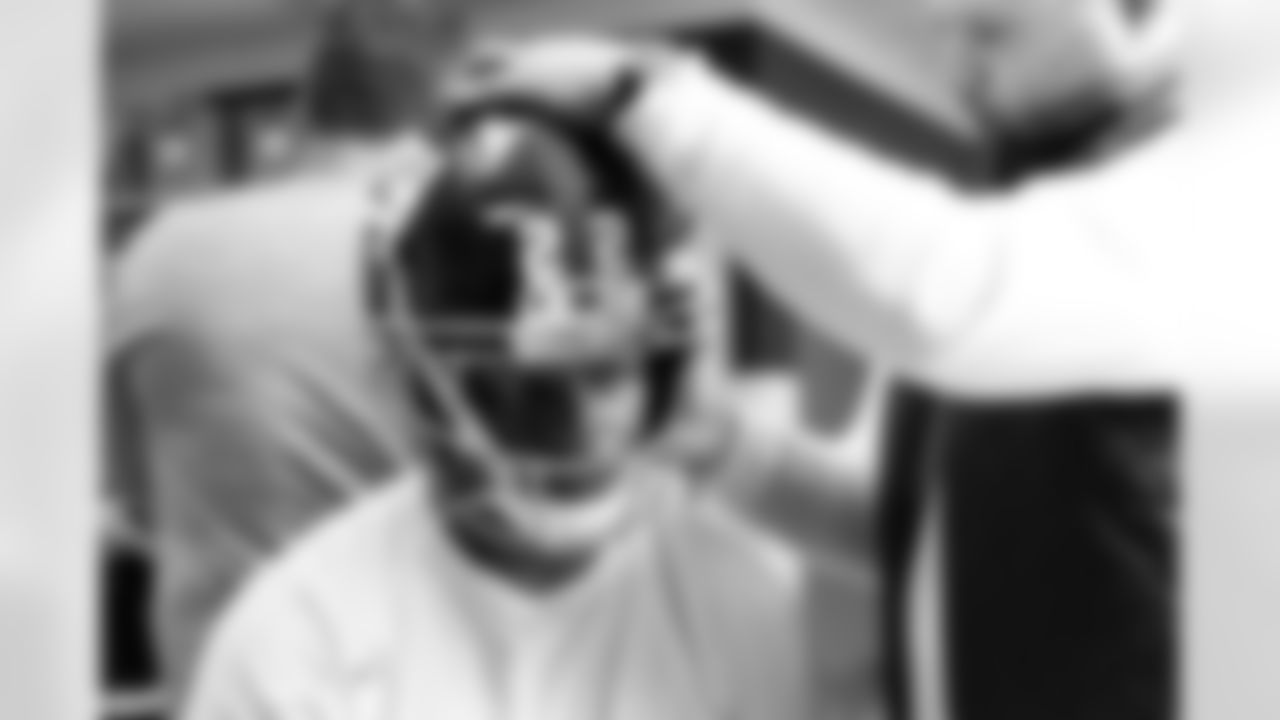
CB Dru Phillips
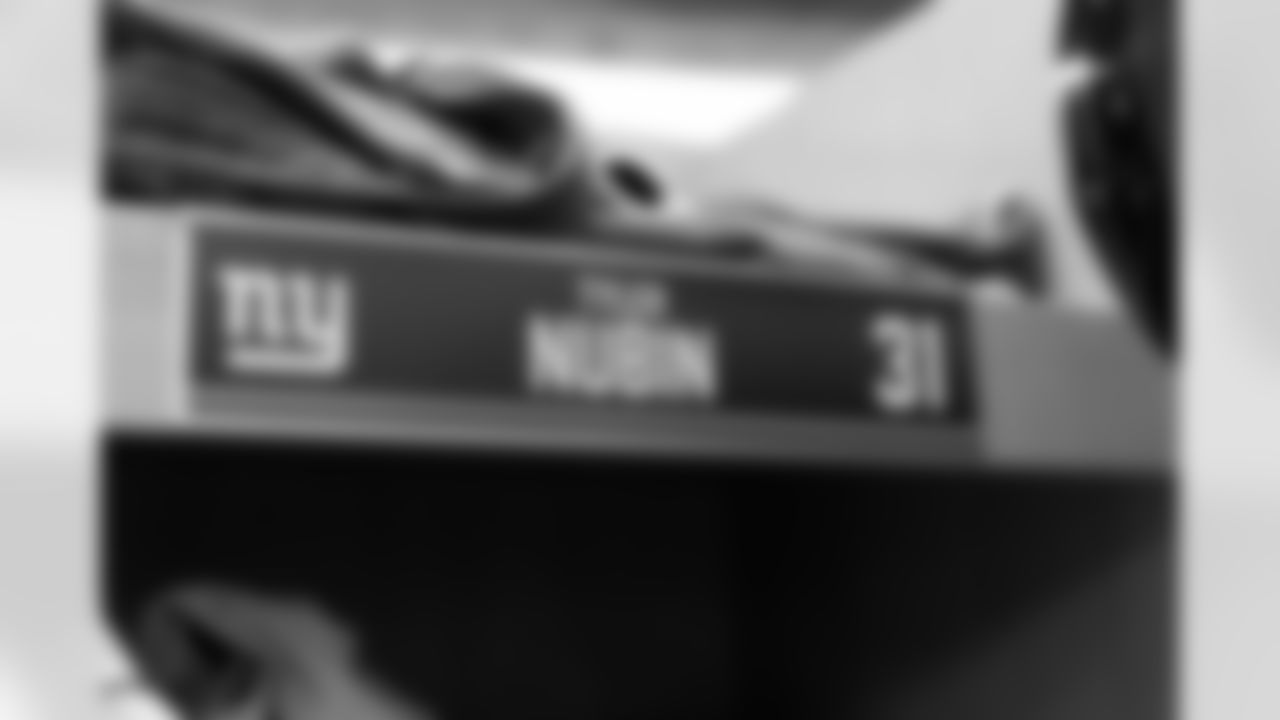
S Tyler Nubin (31)
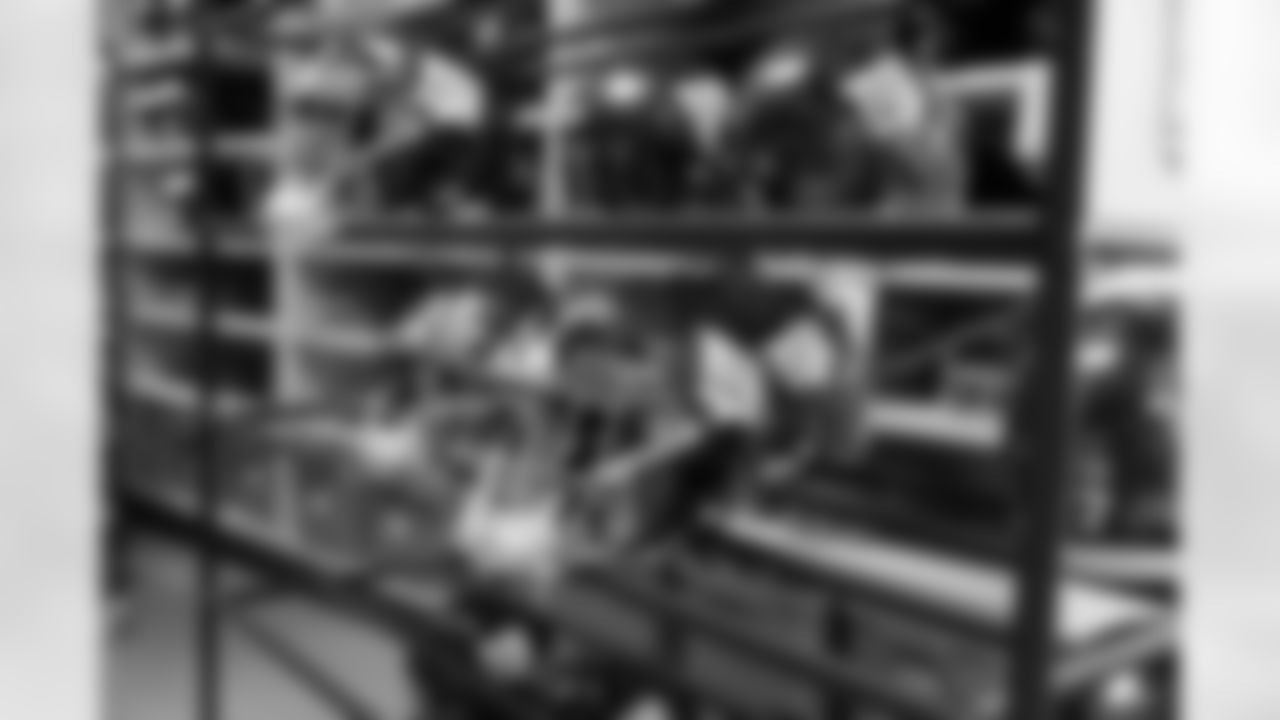
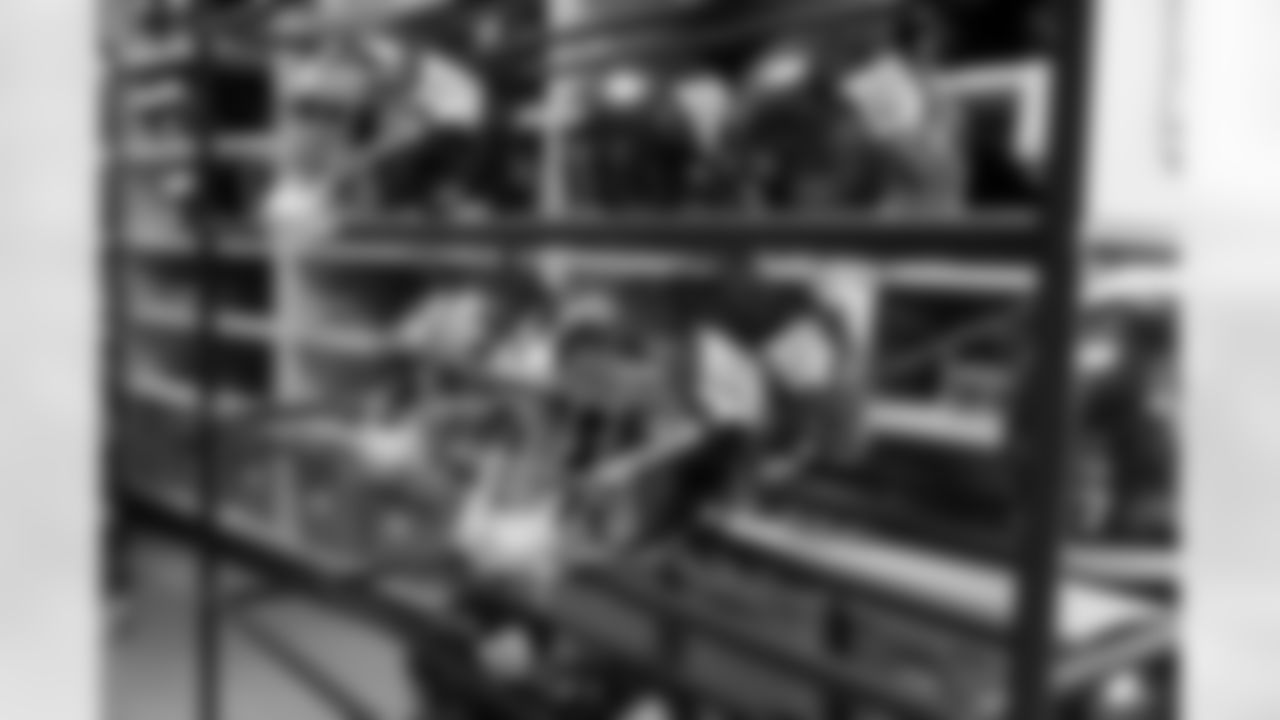
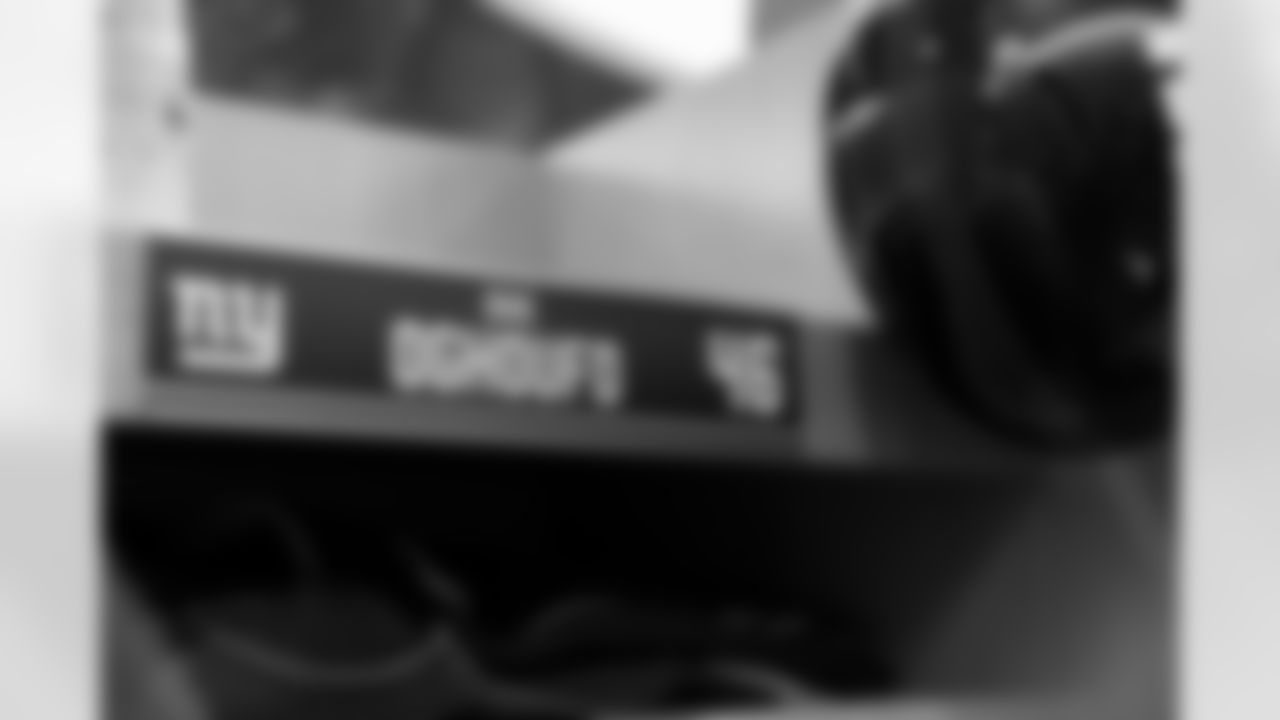
Ovie Oghoufo (46)
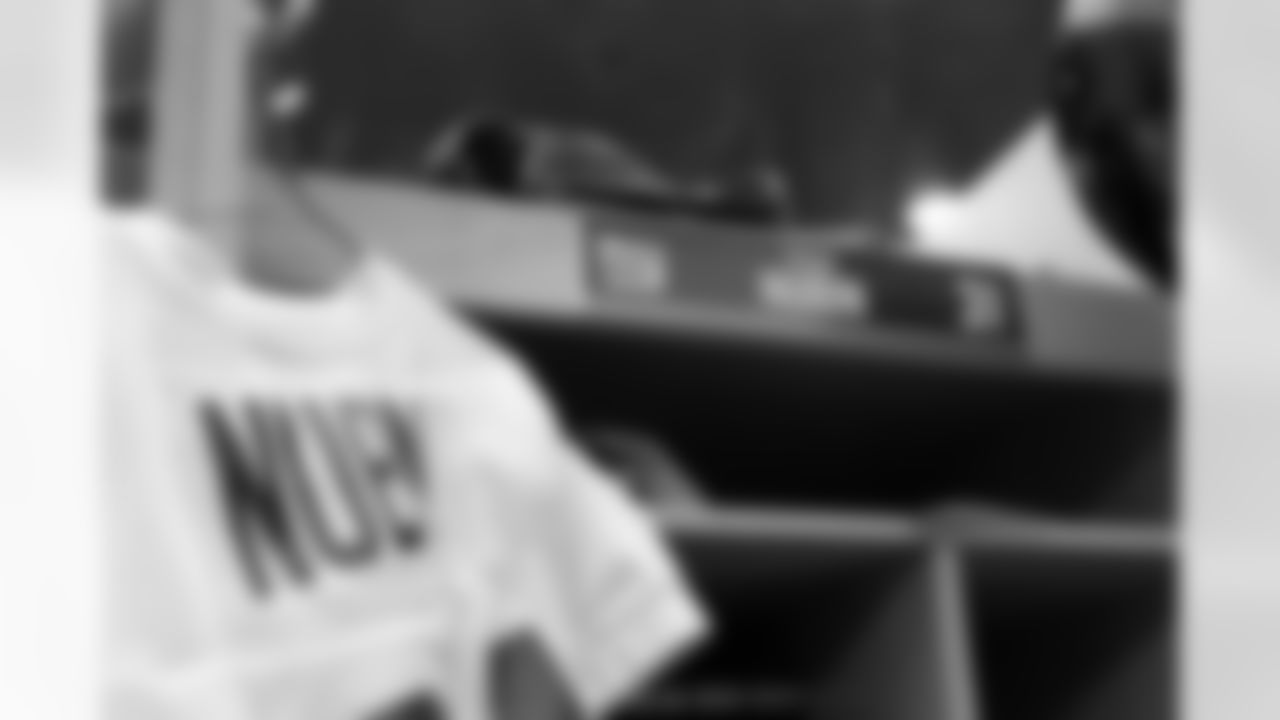
S Tyler Nubin (31)
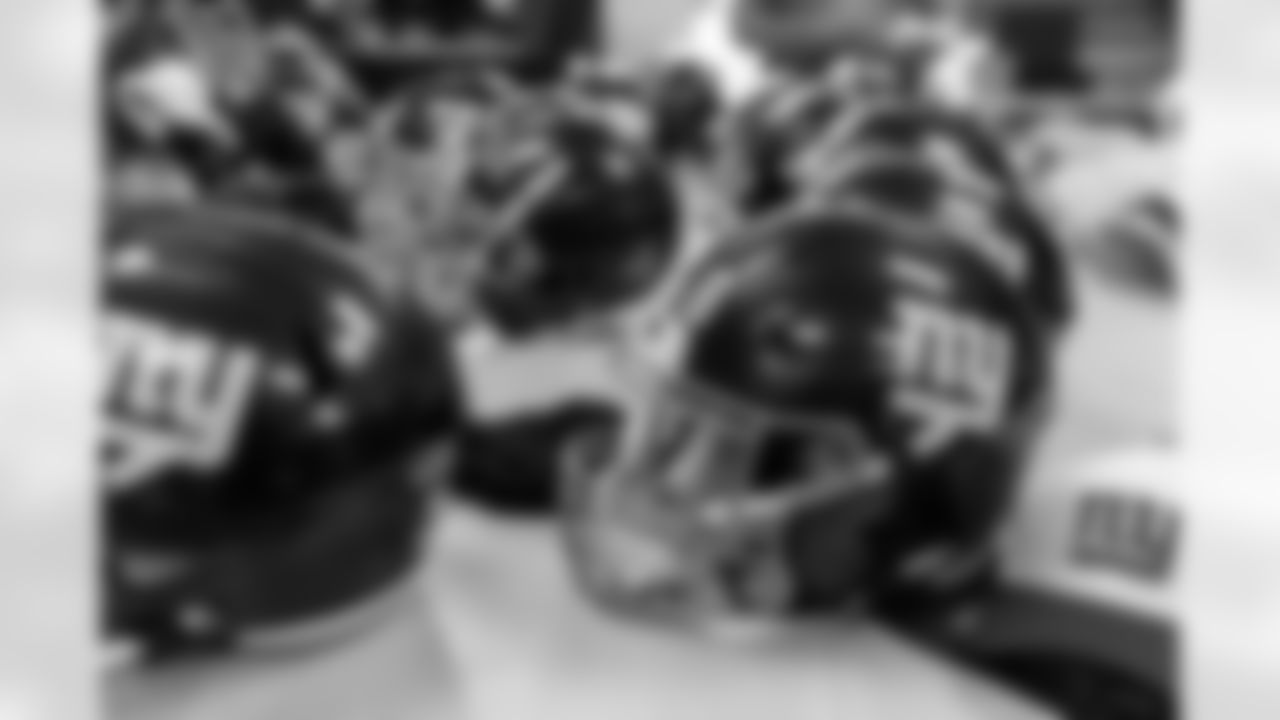
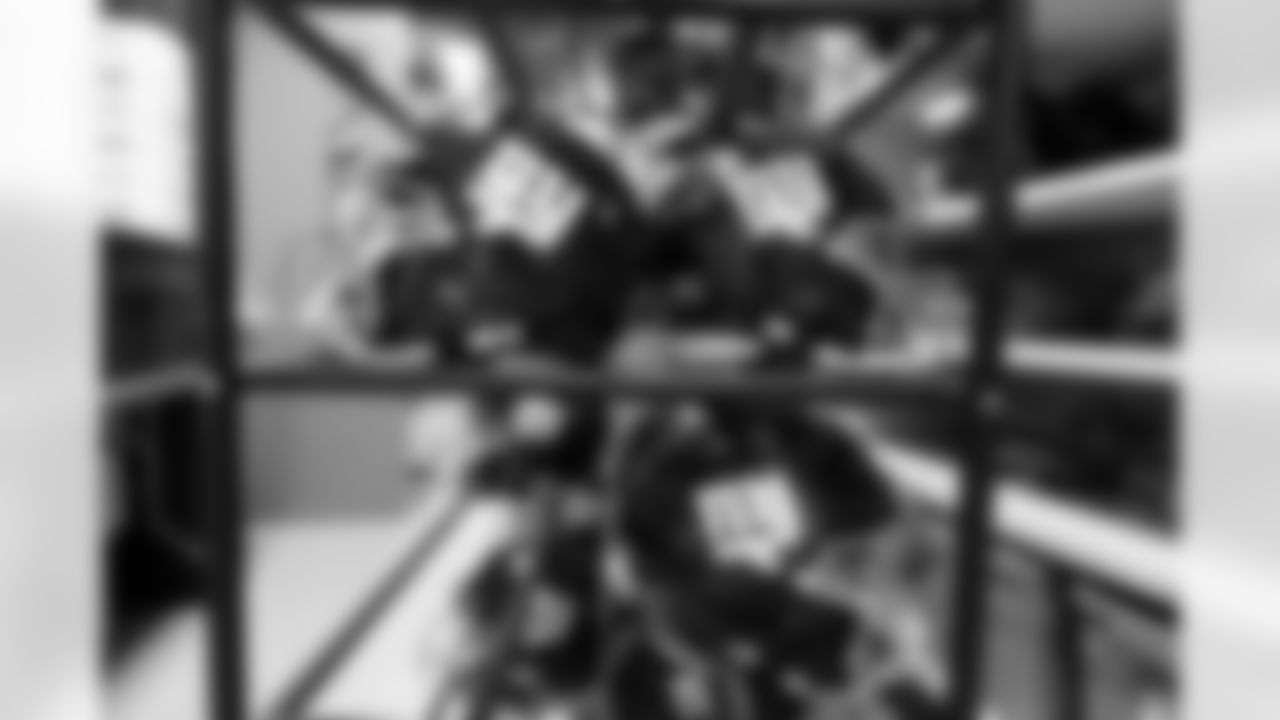
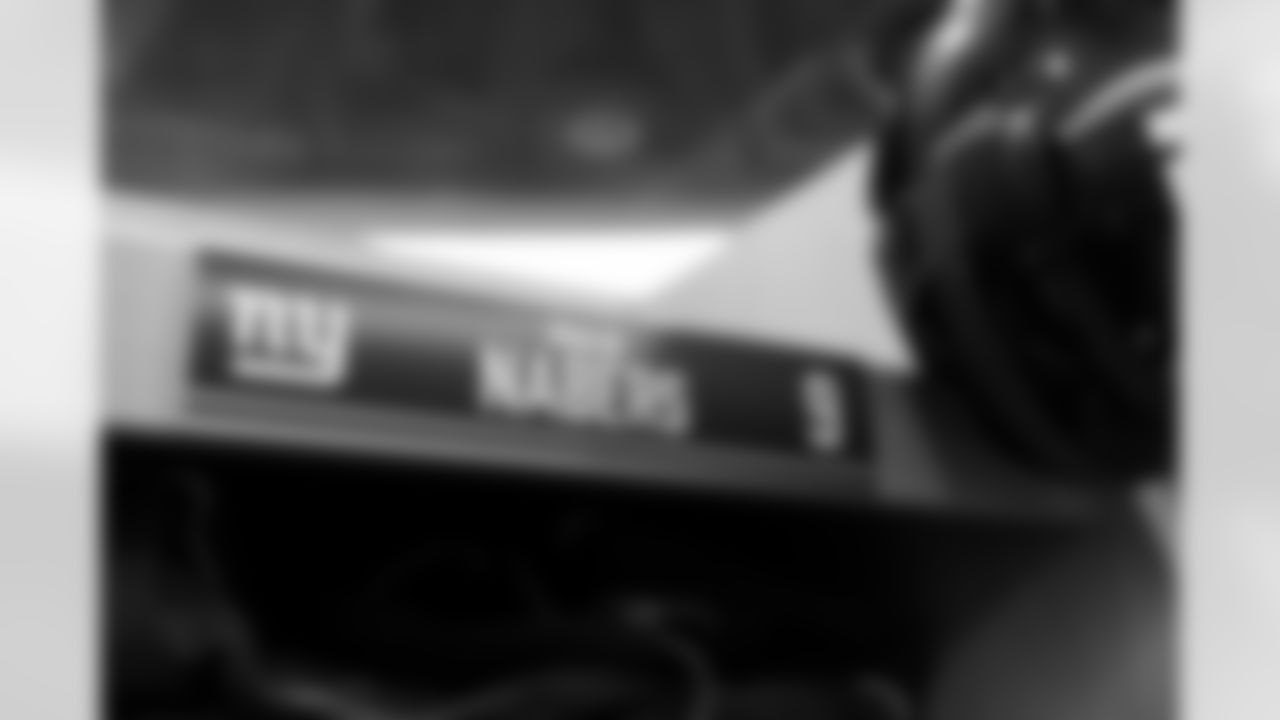
WR Malik Nabers (9)
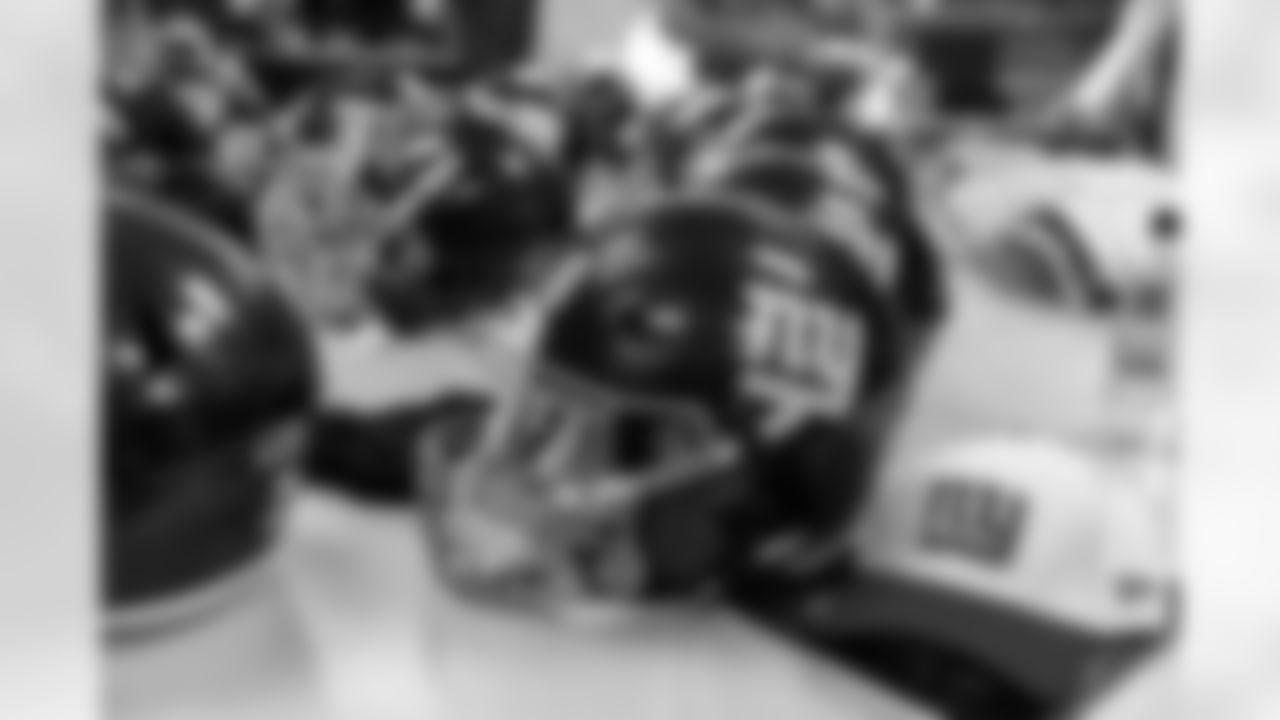
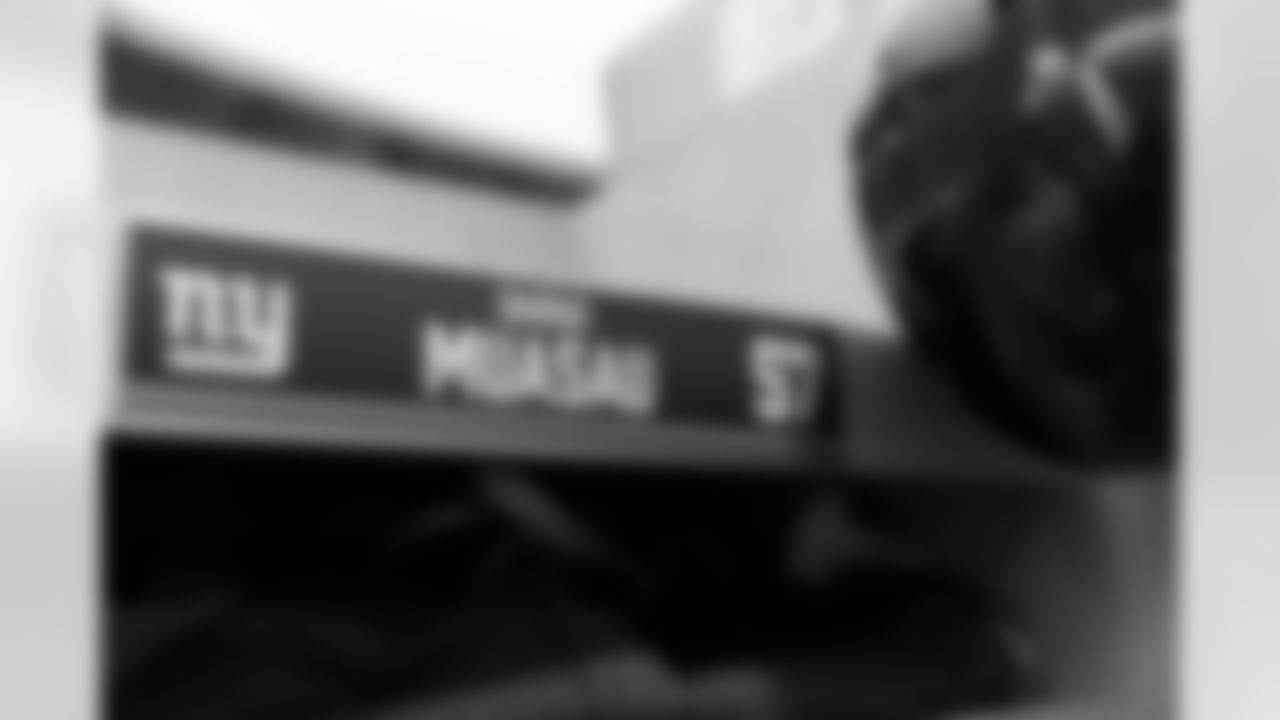
LB Darius Muasau (57)




